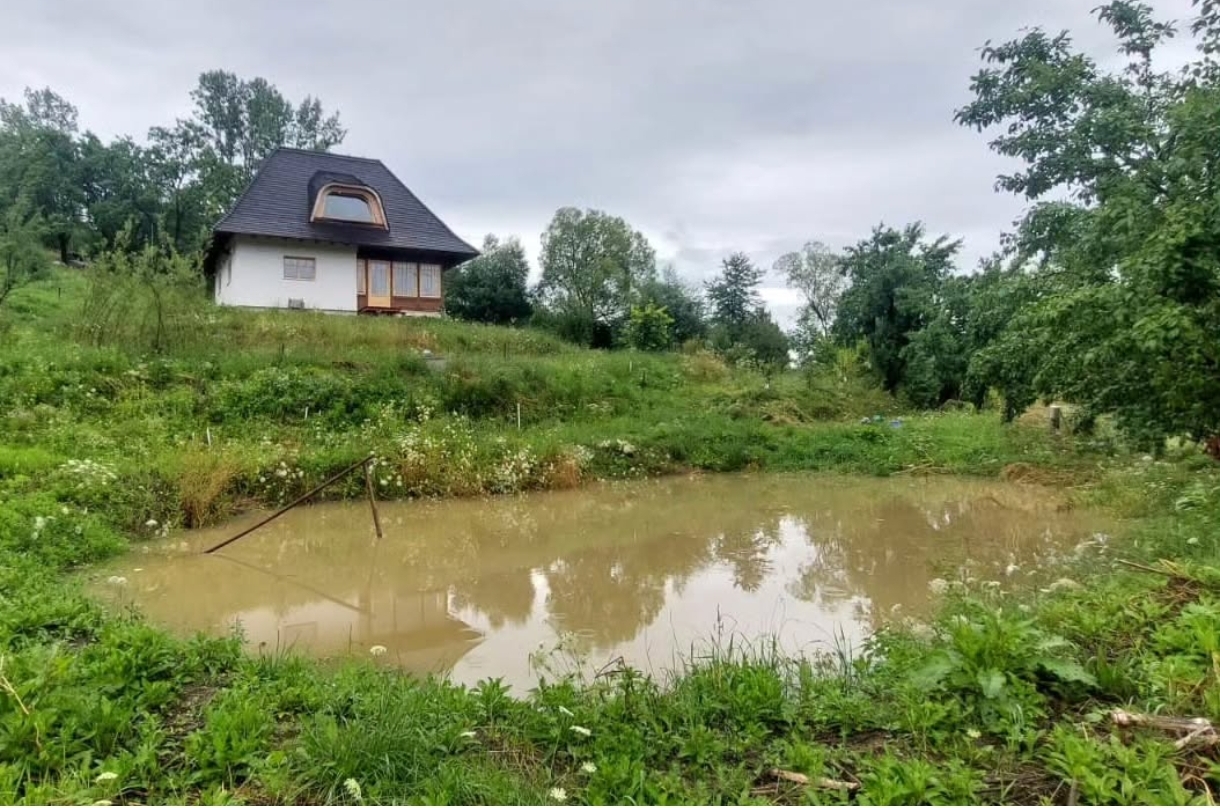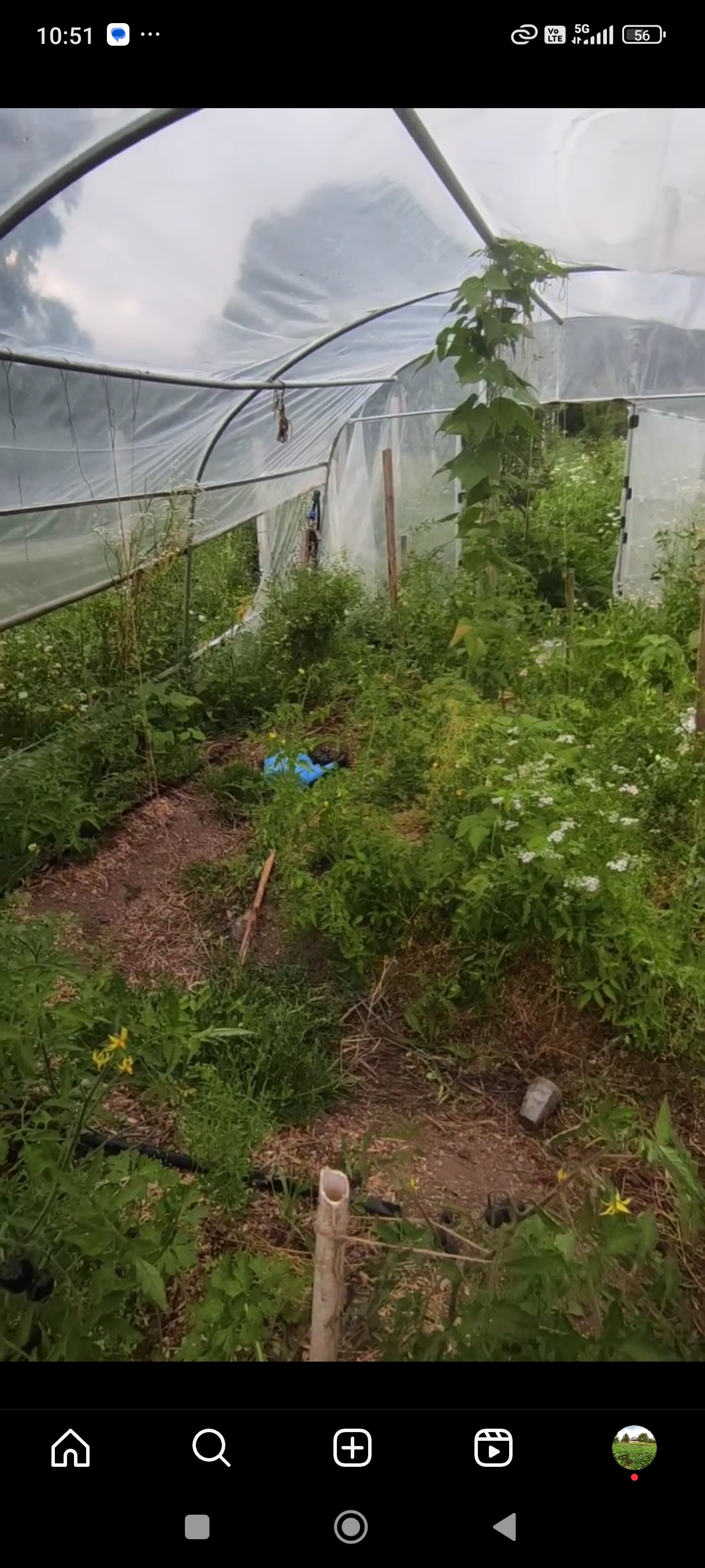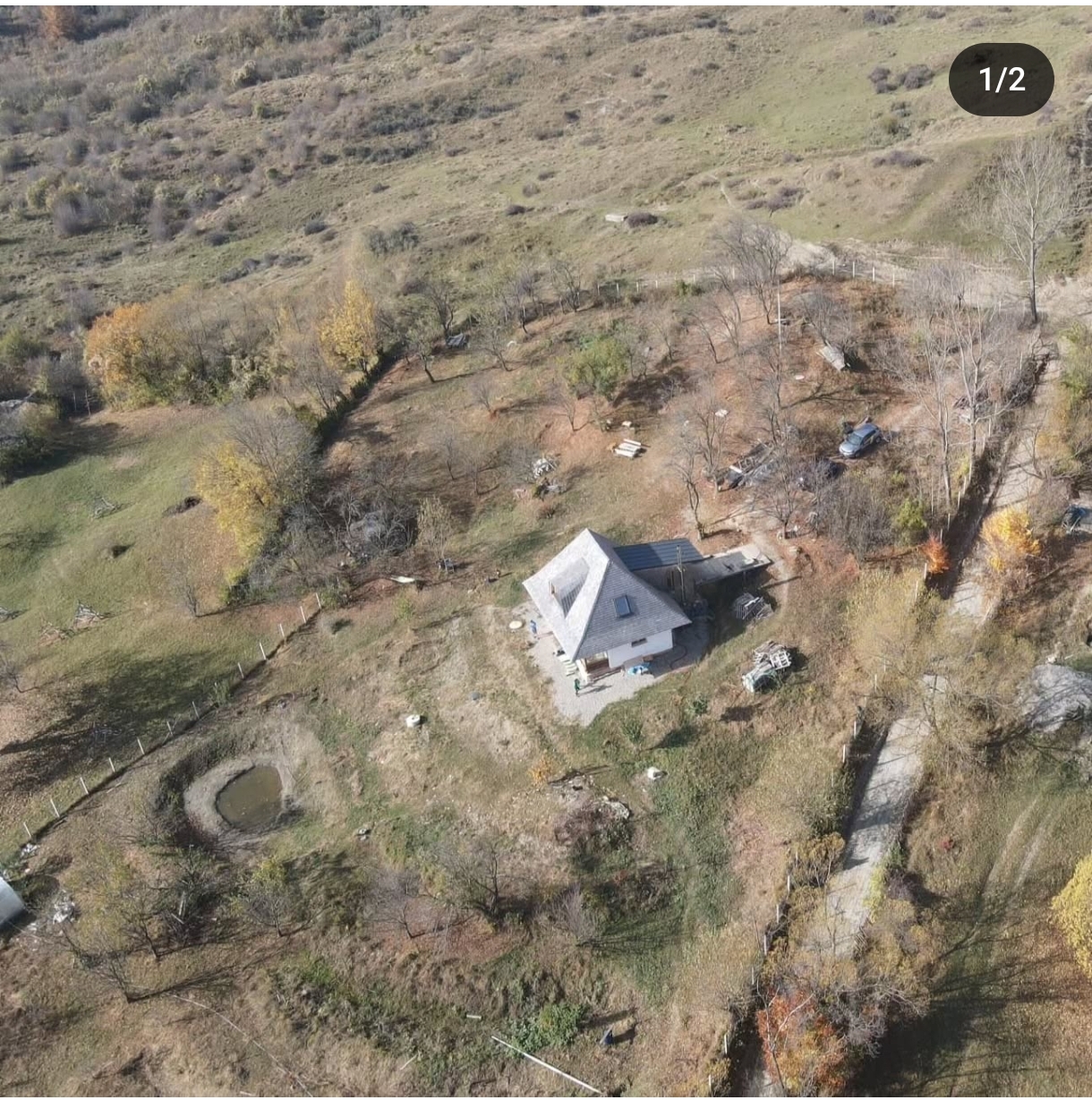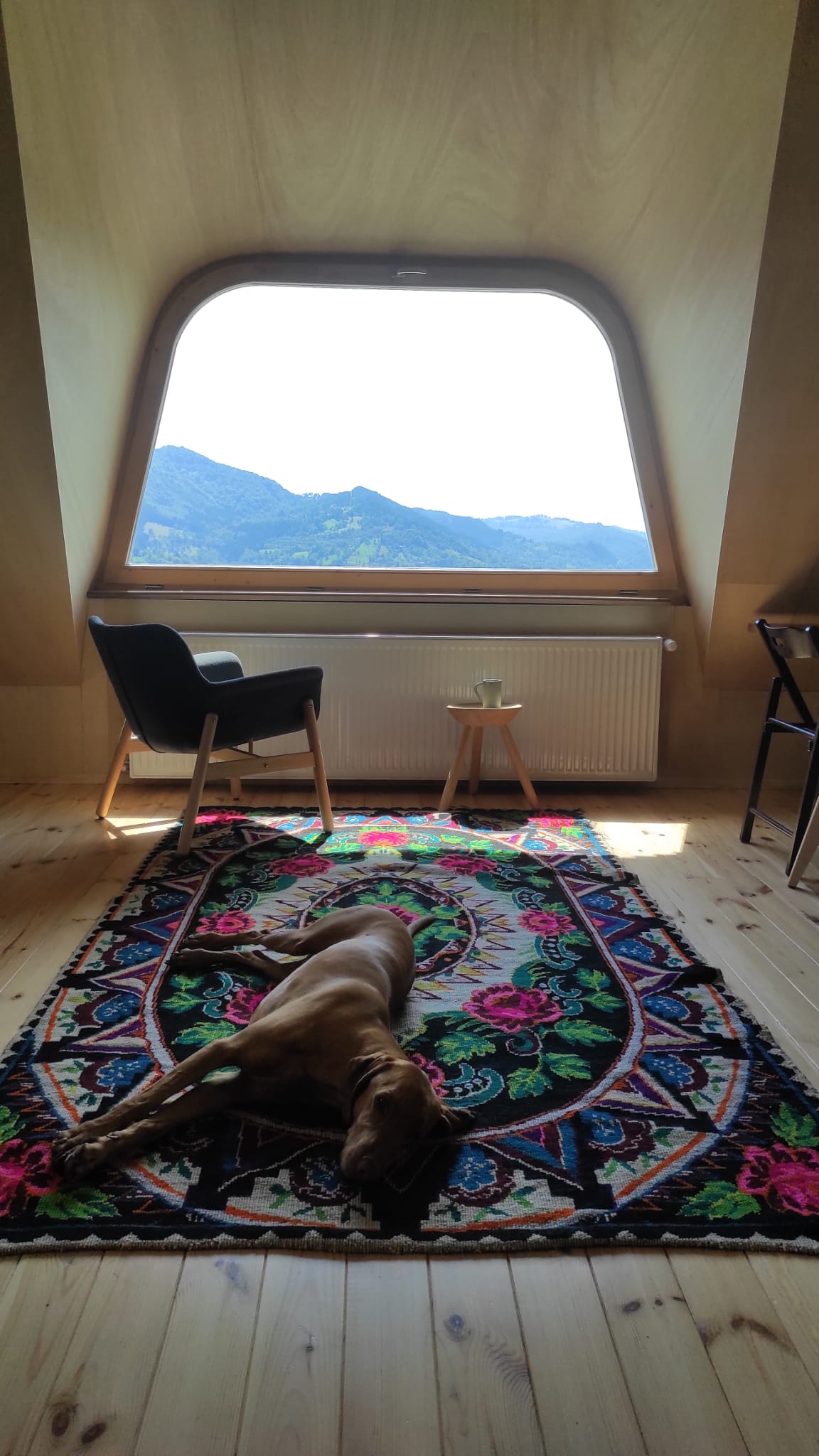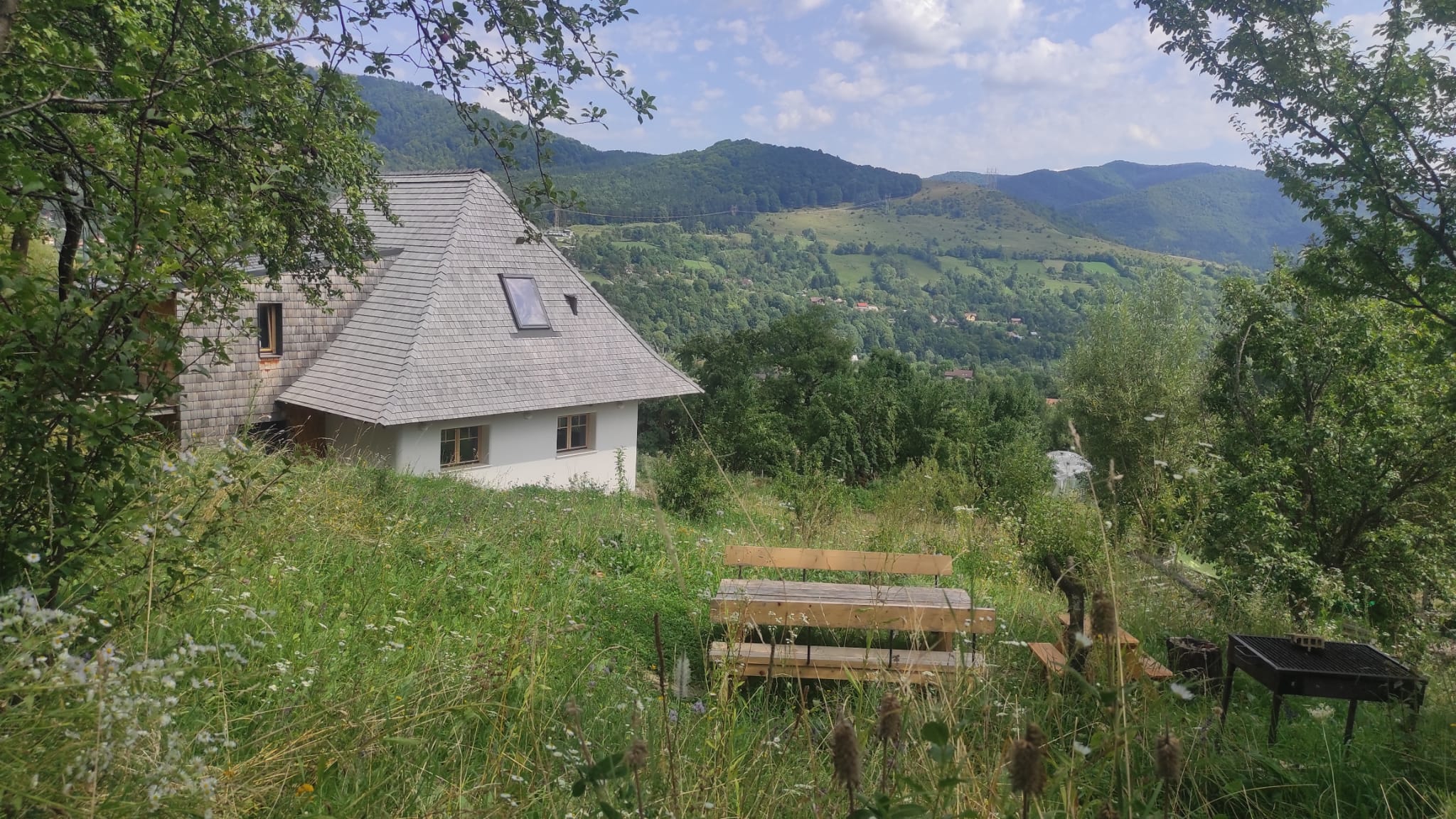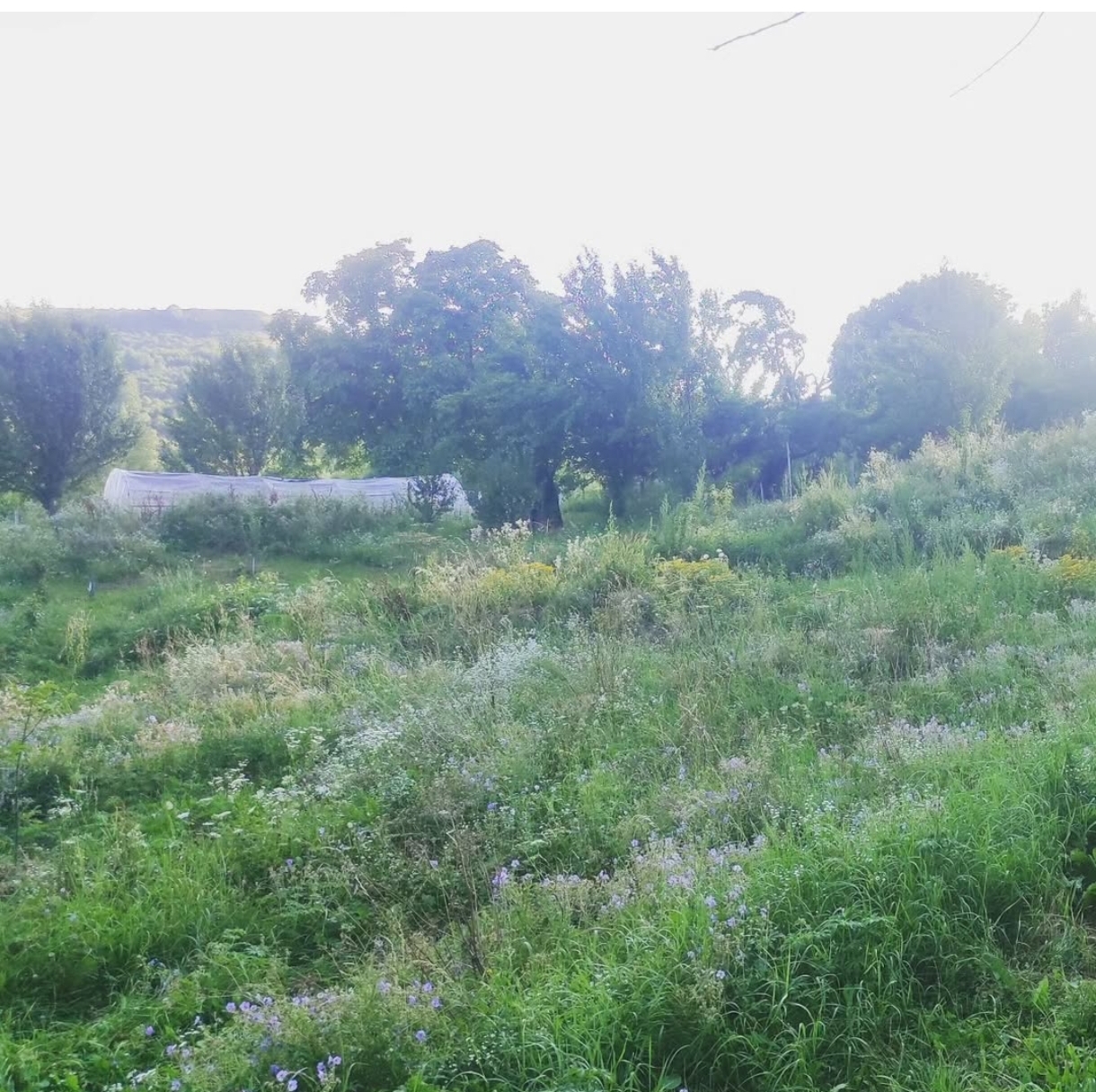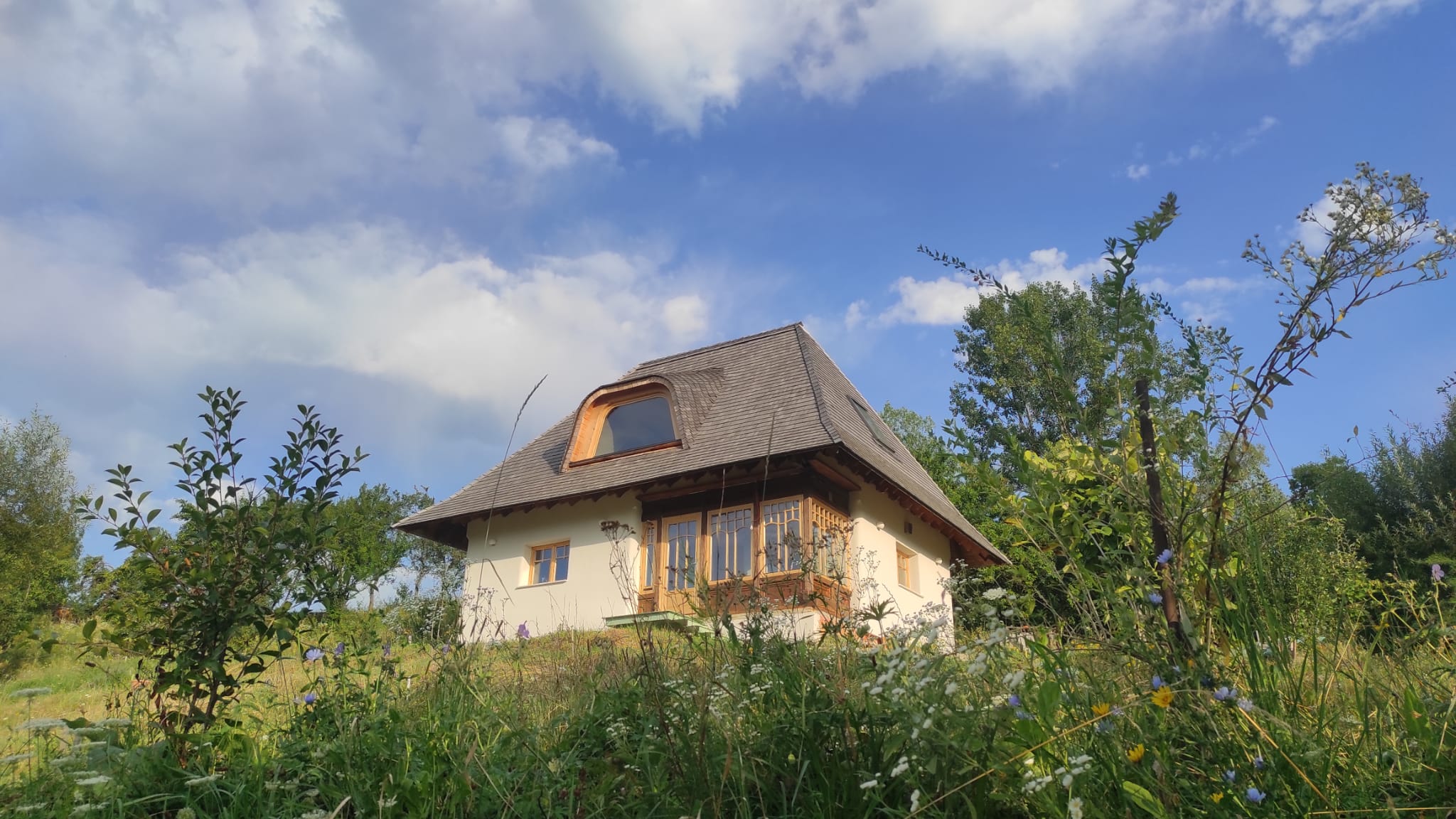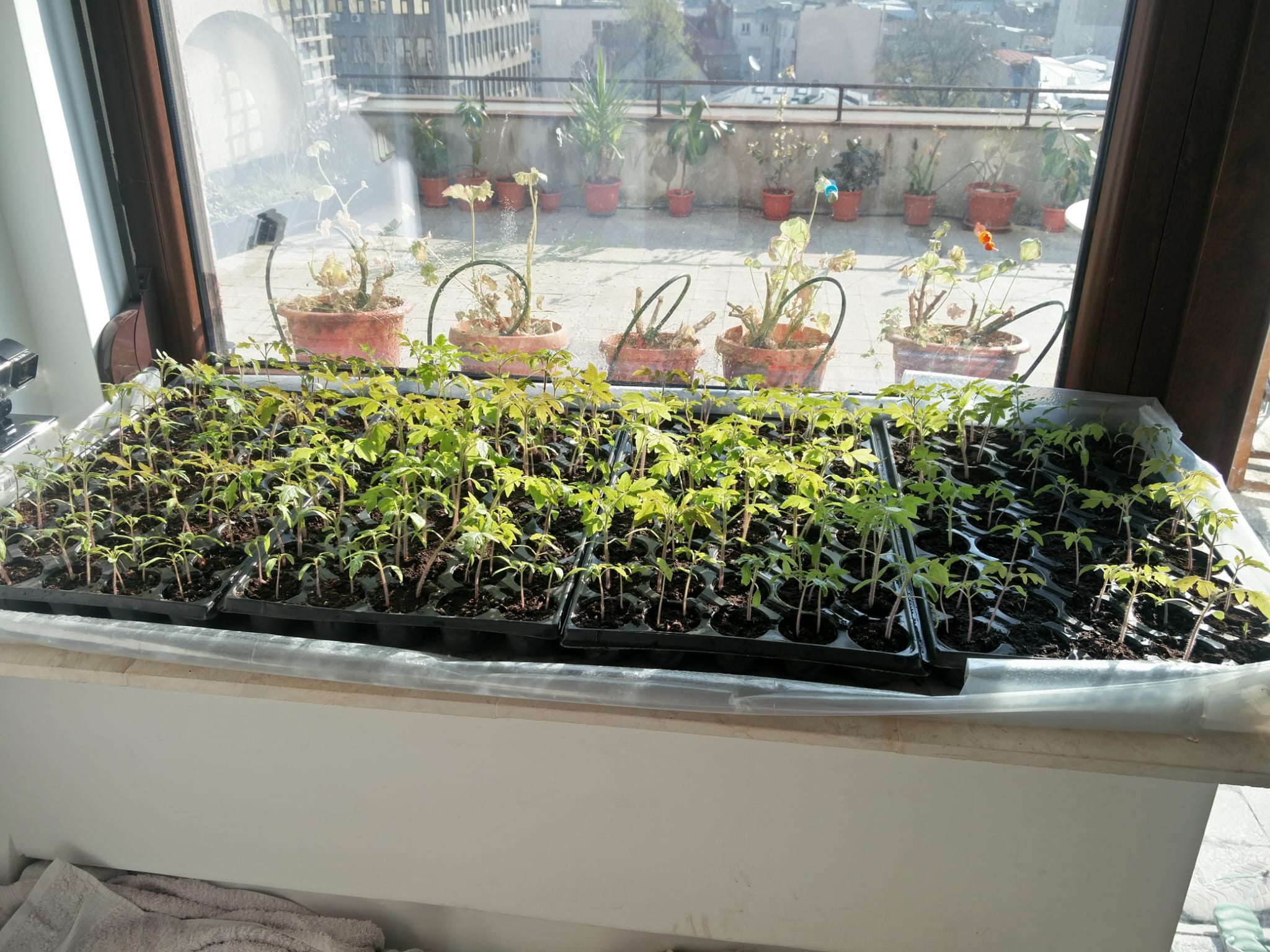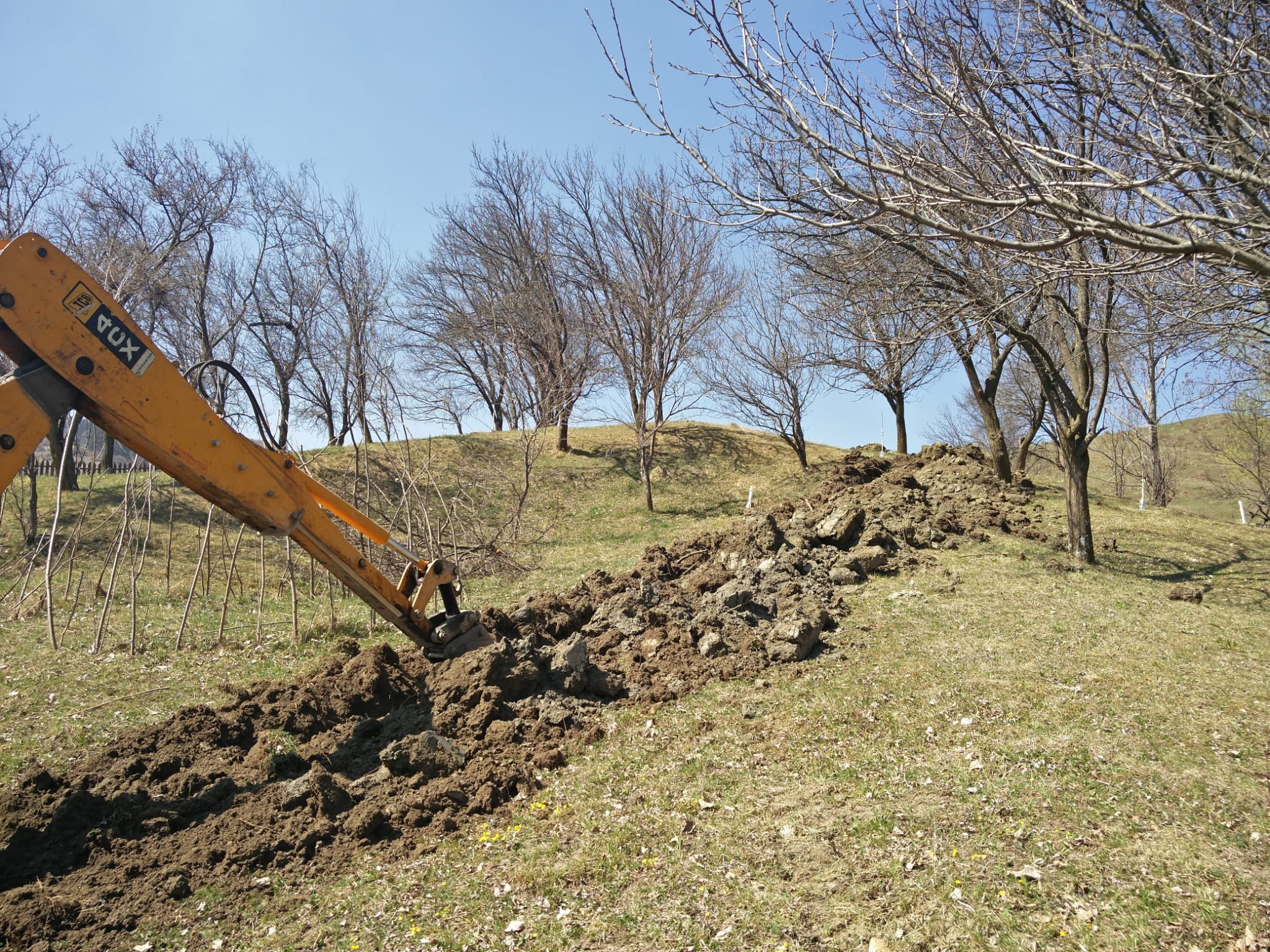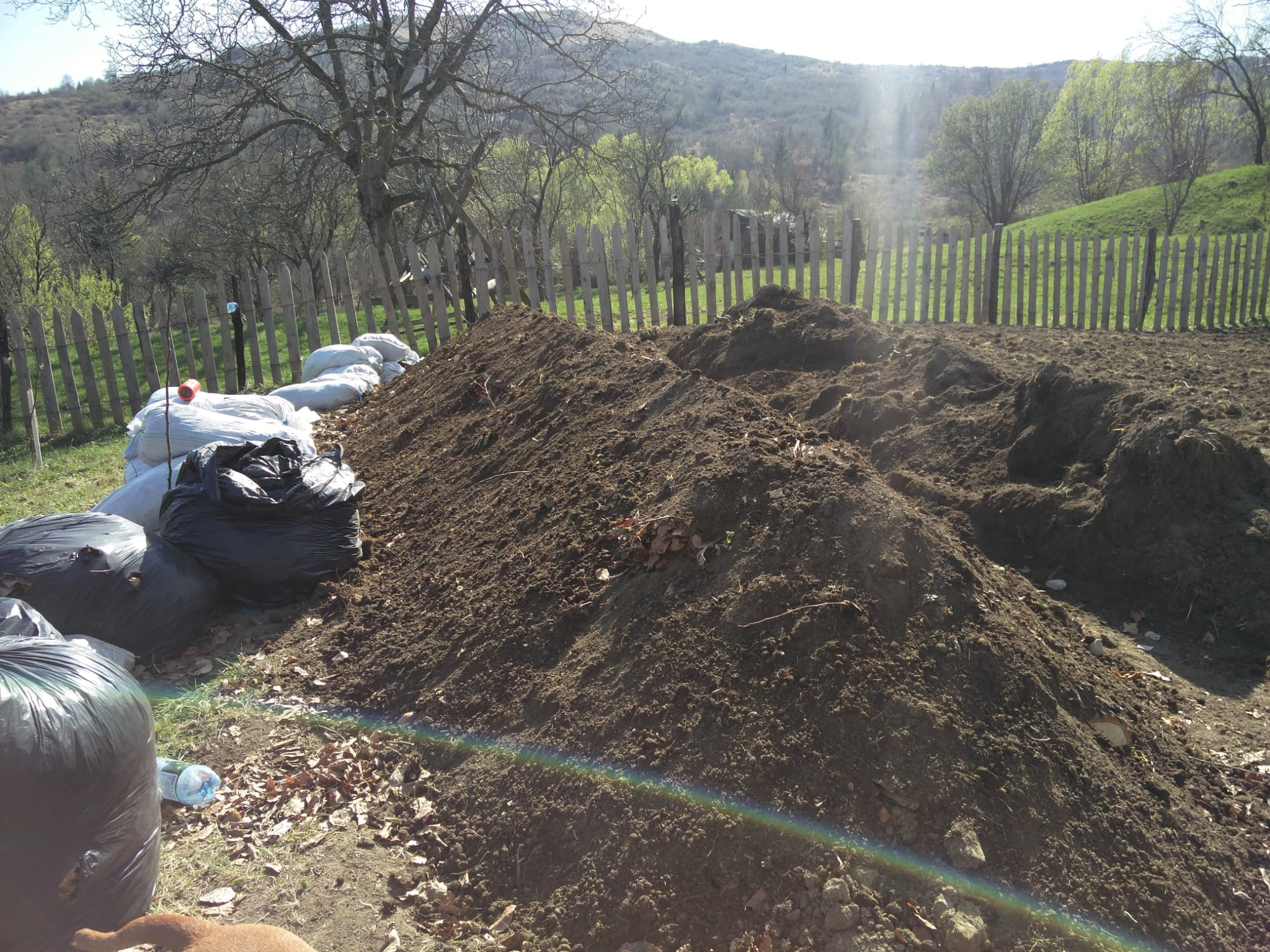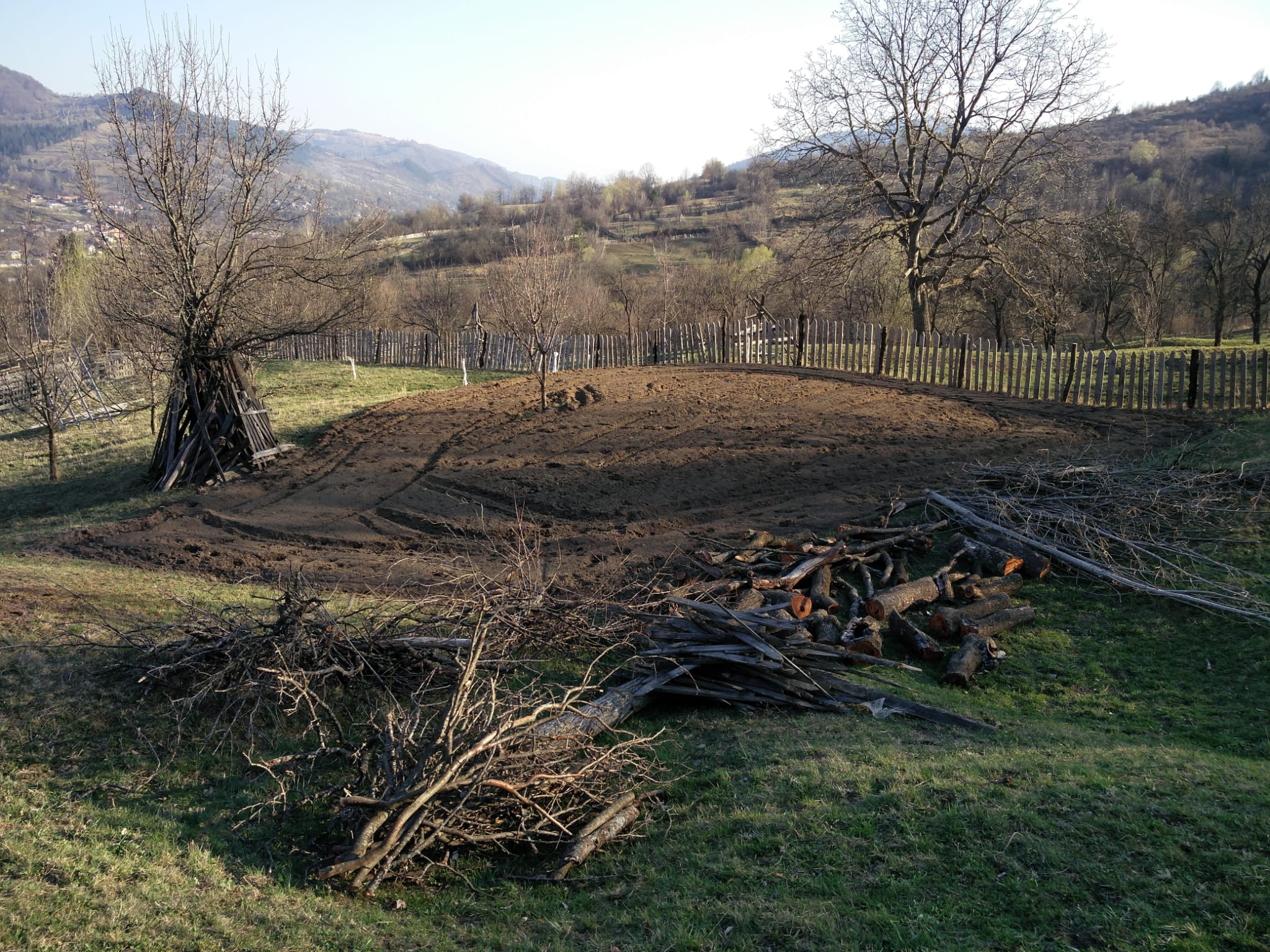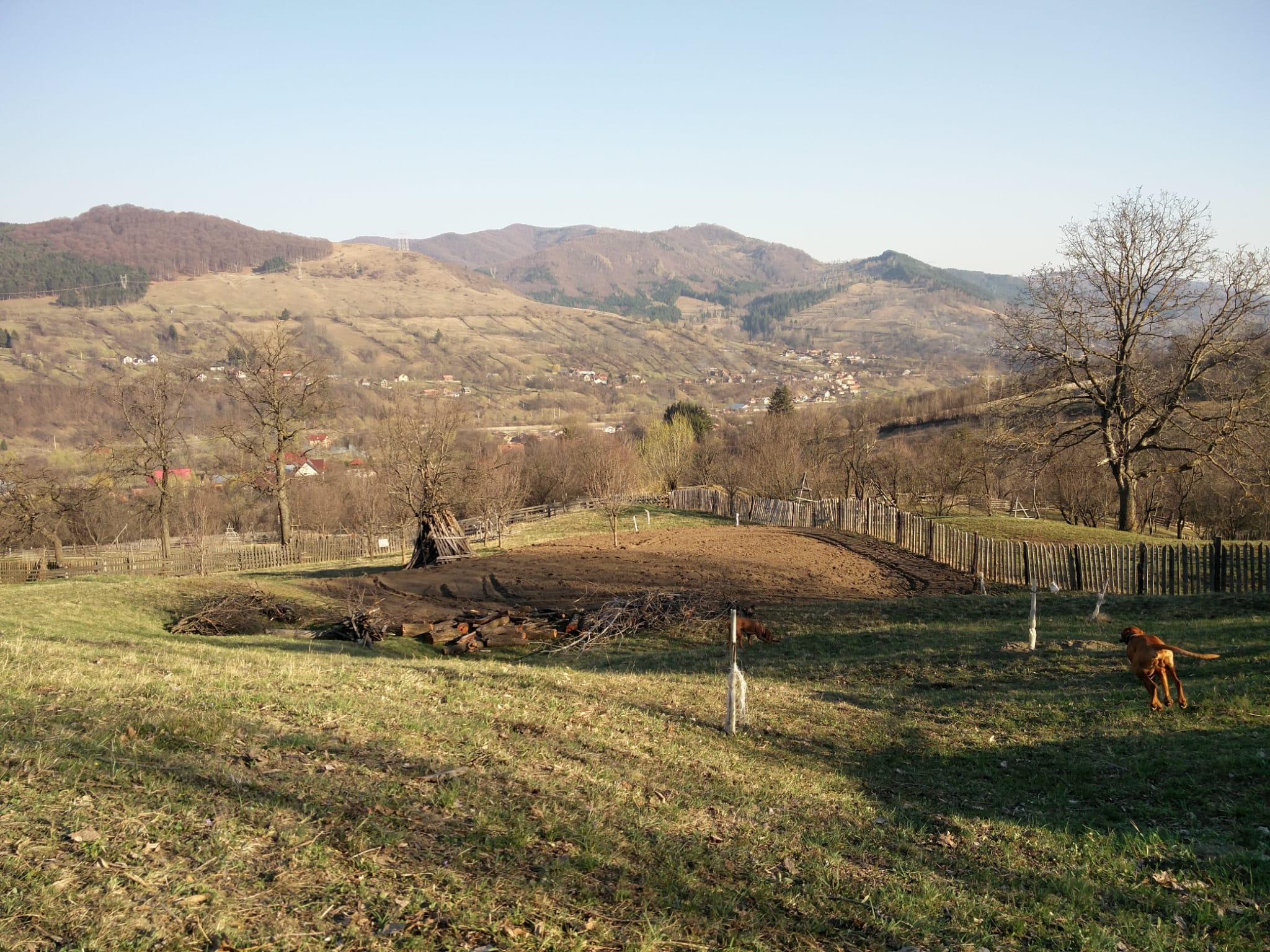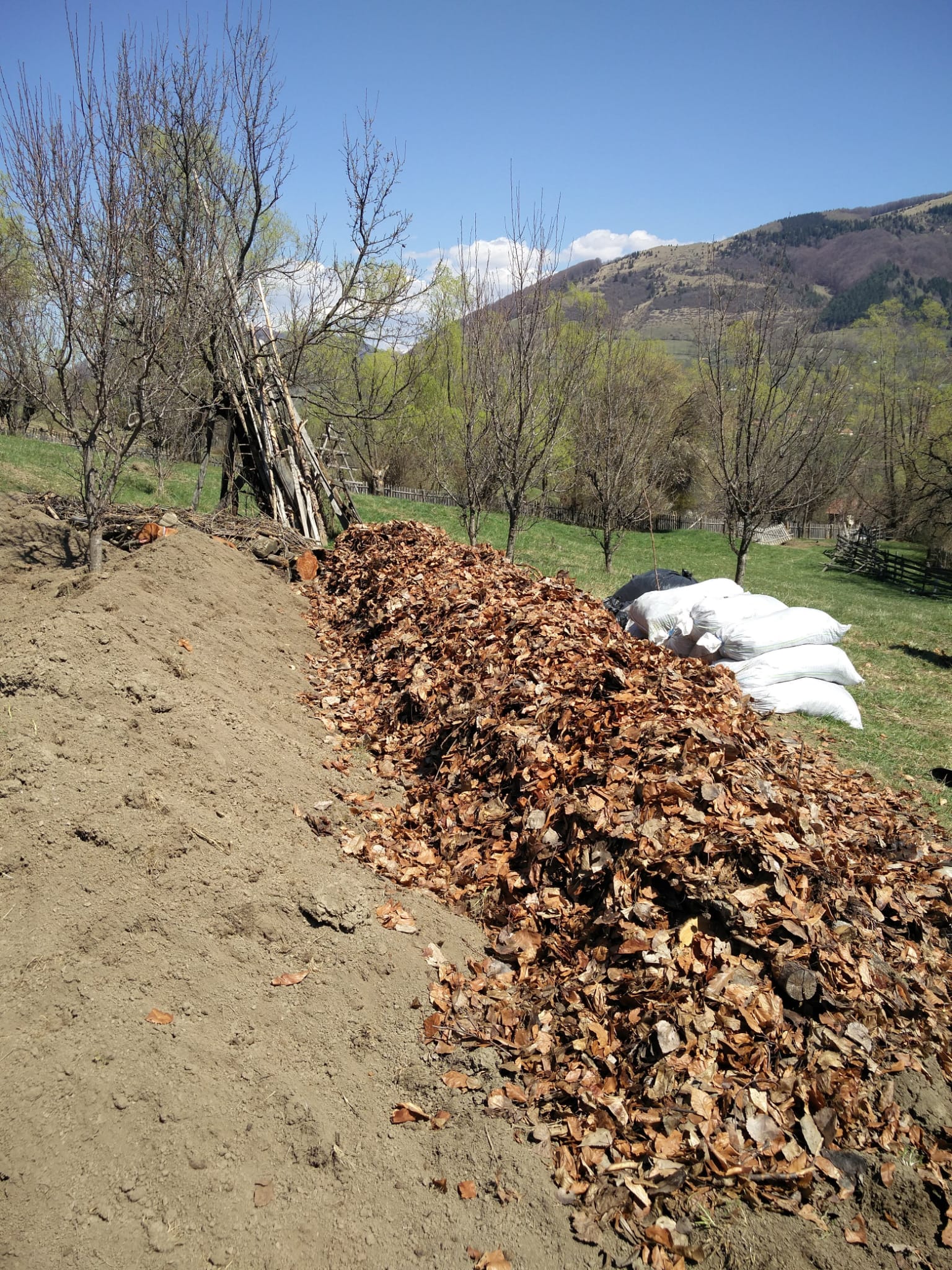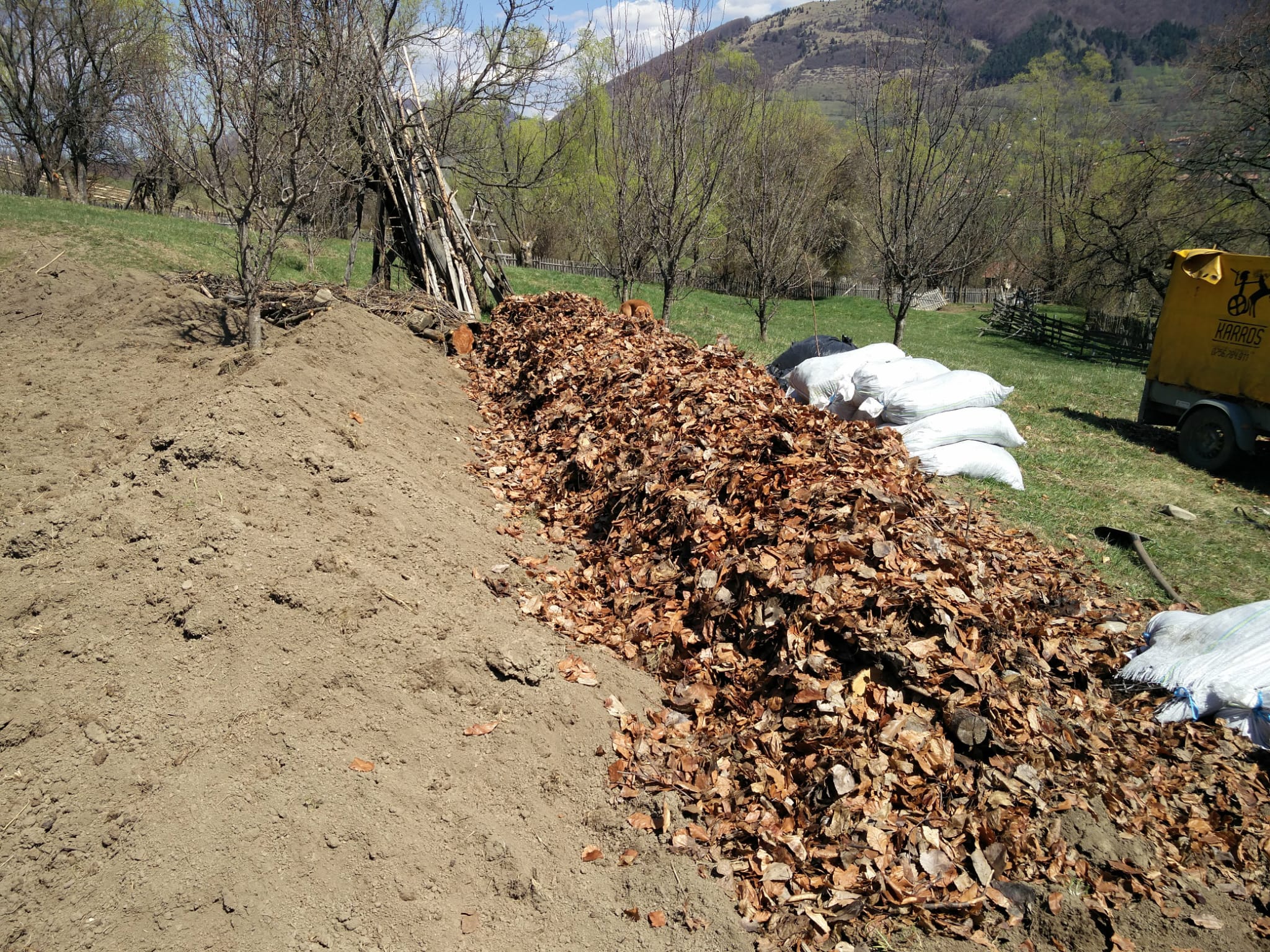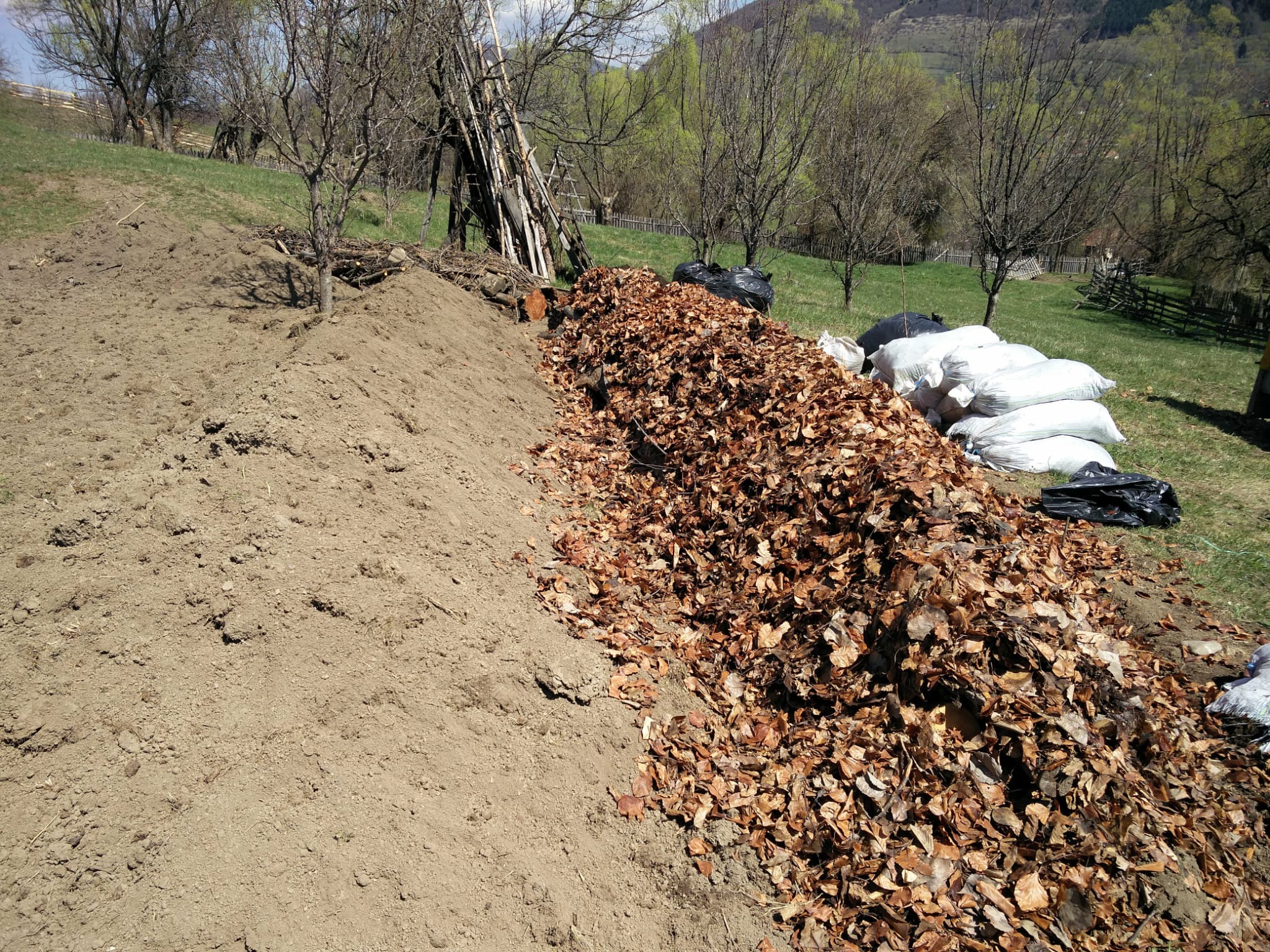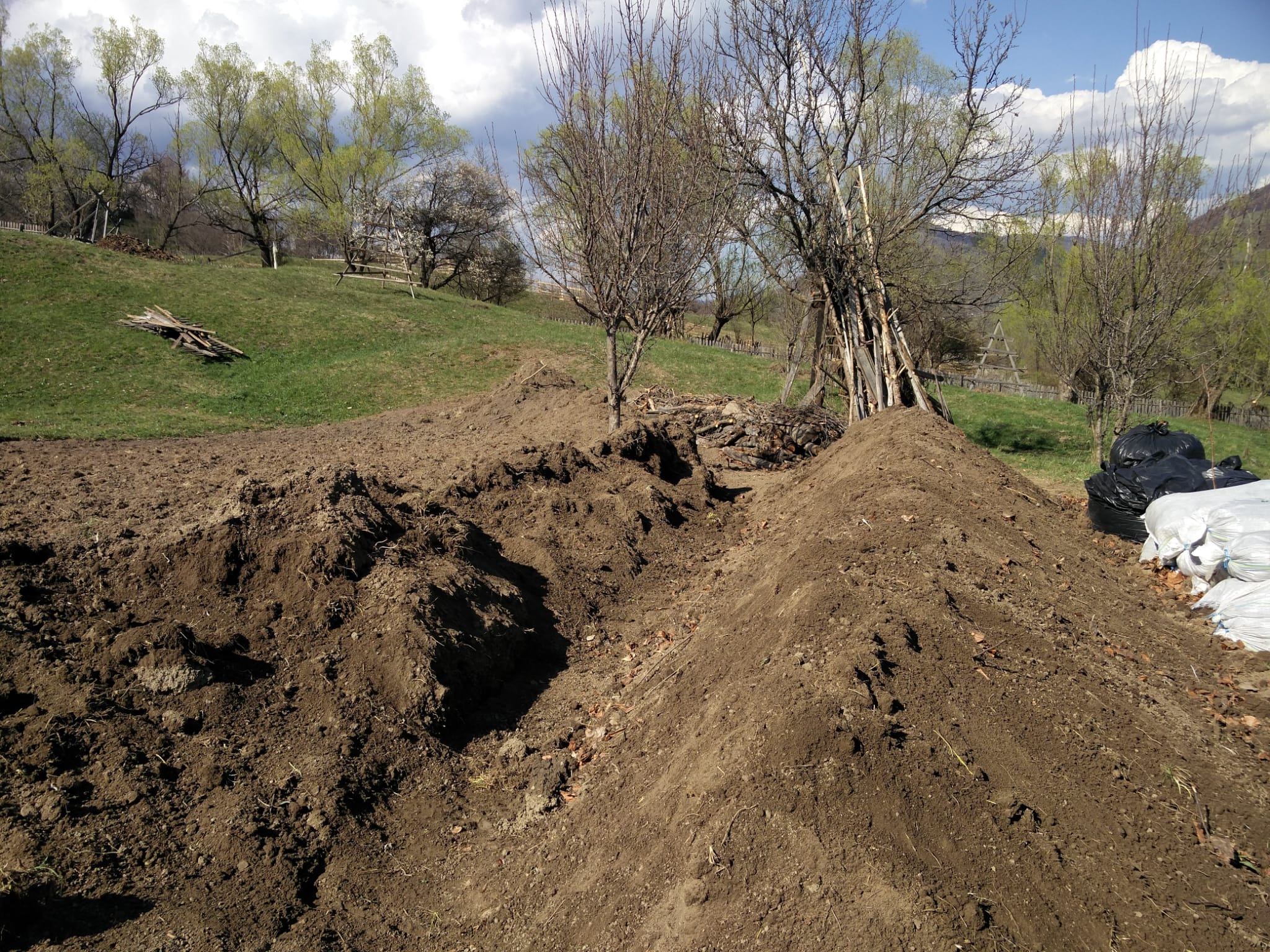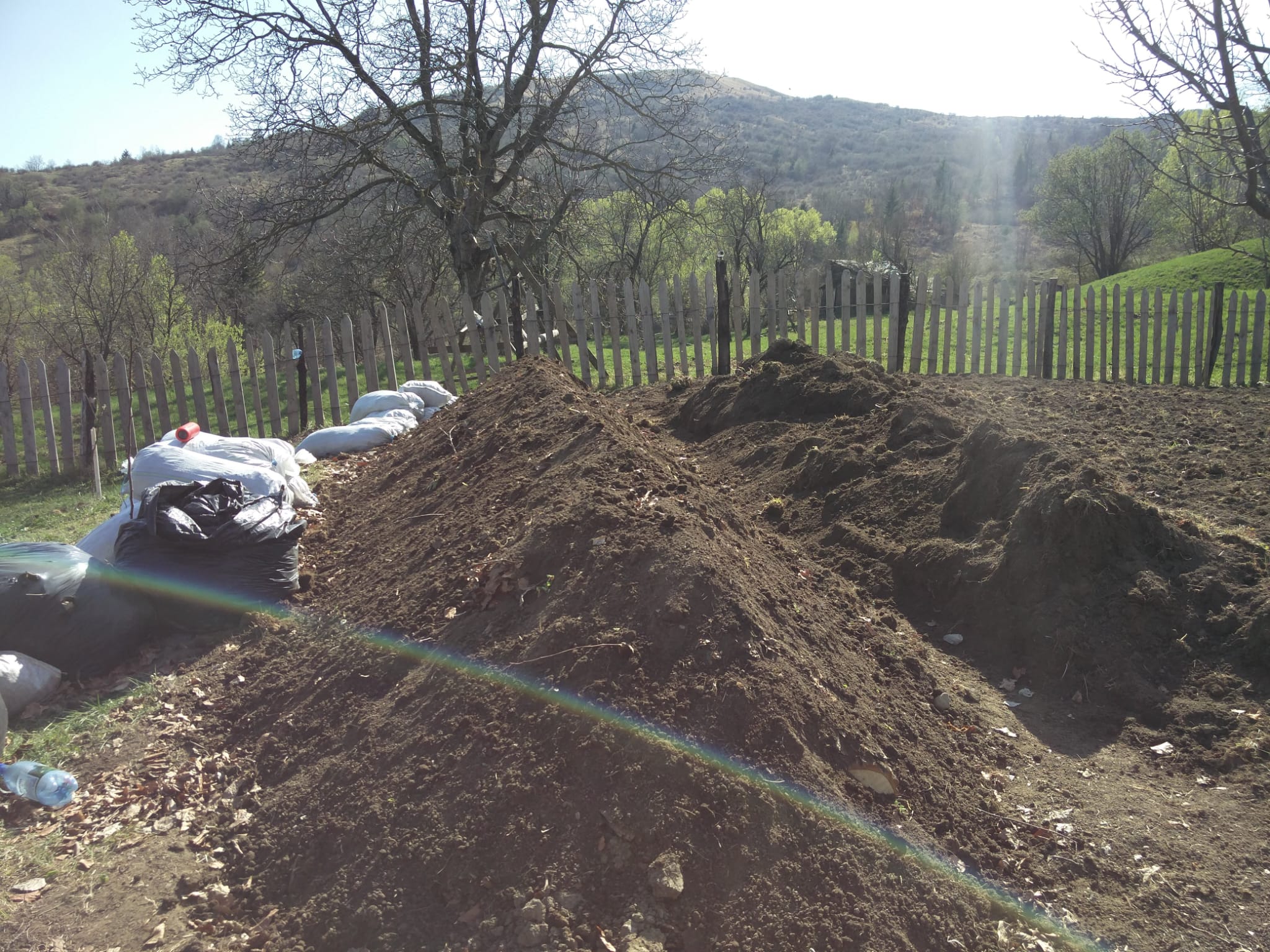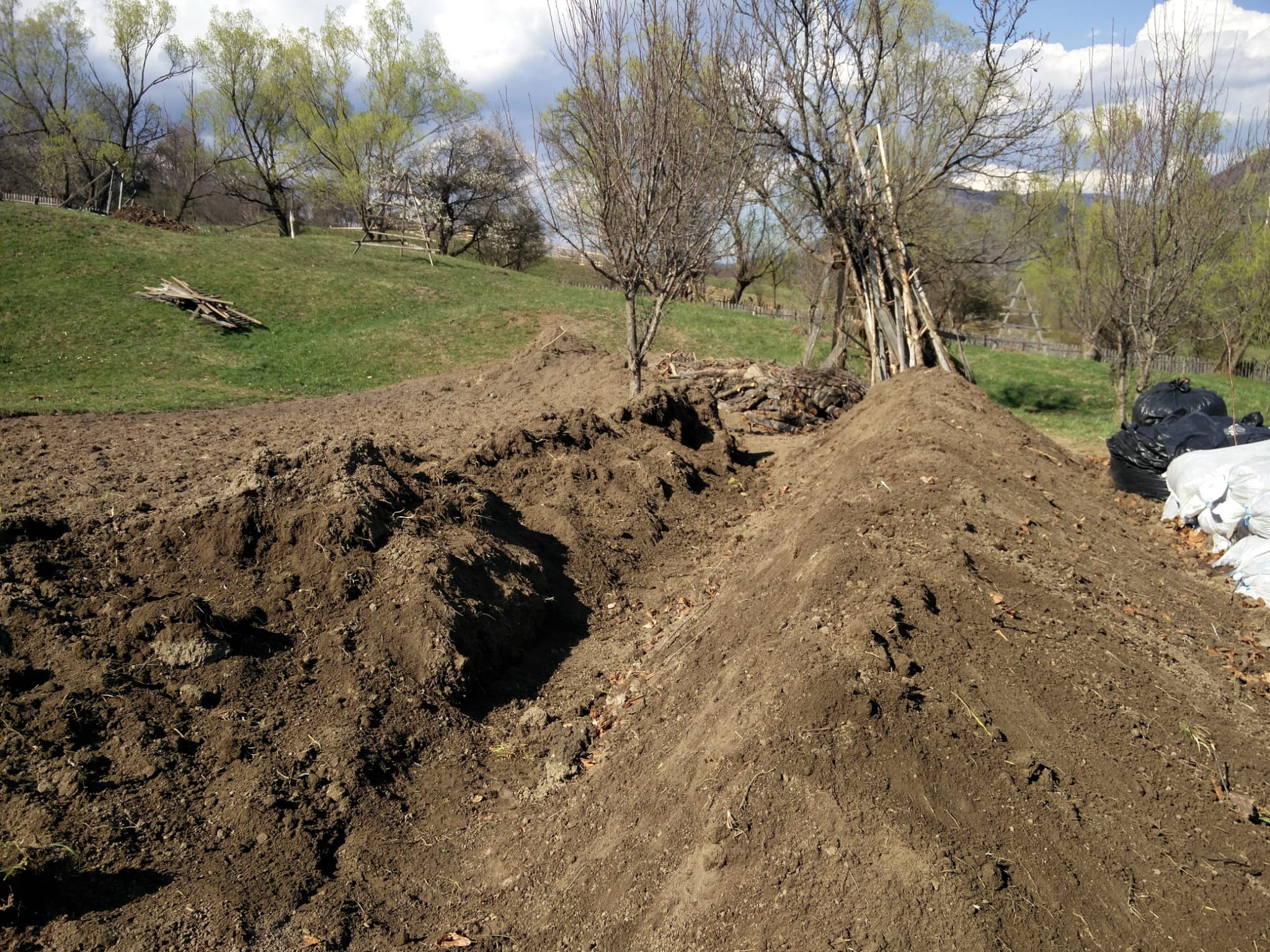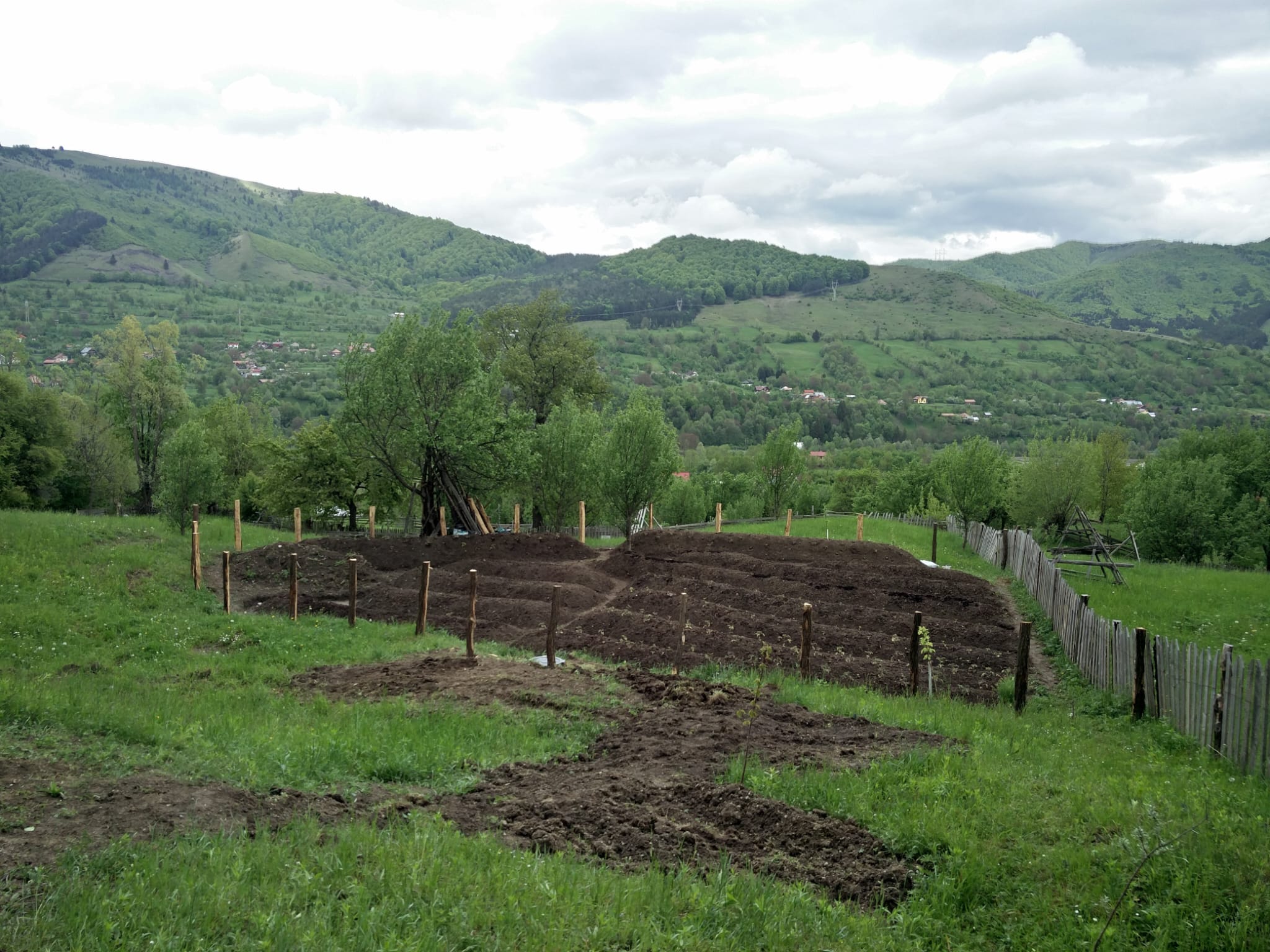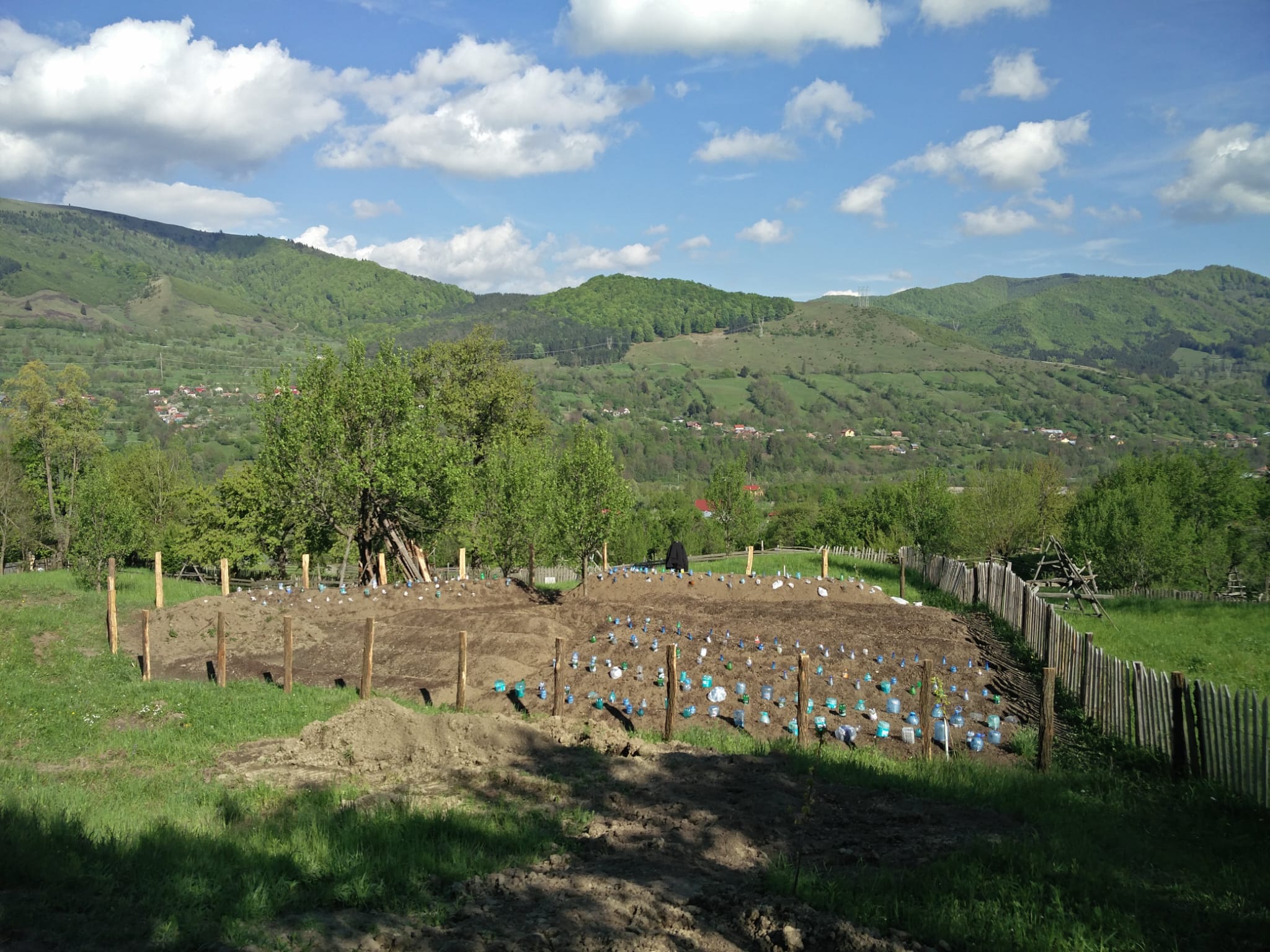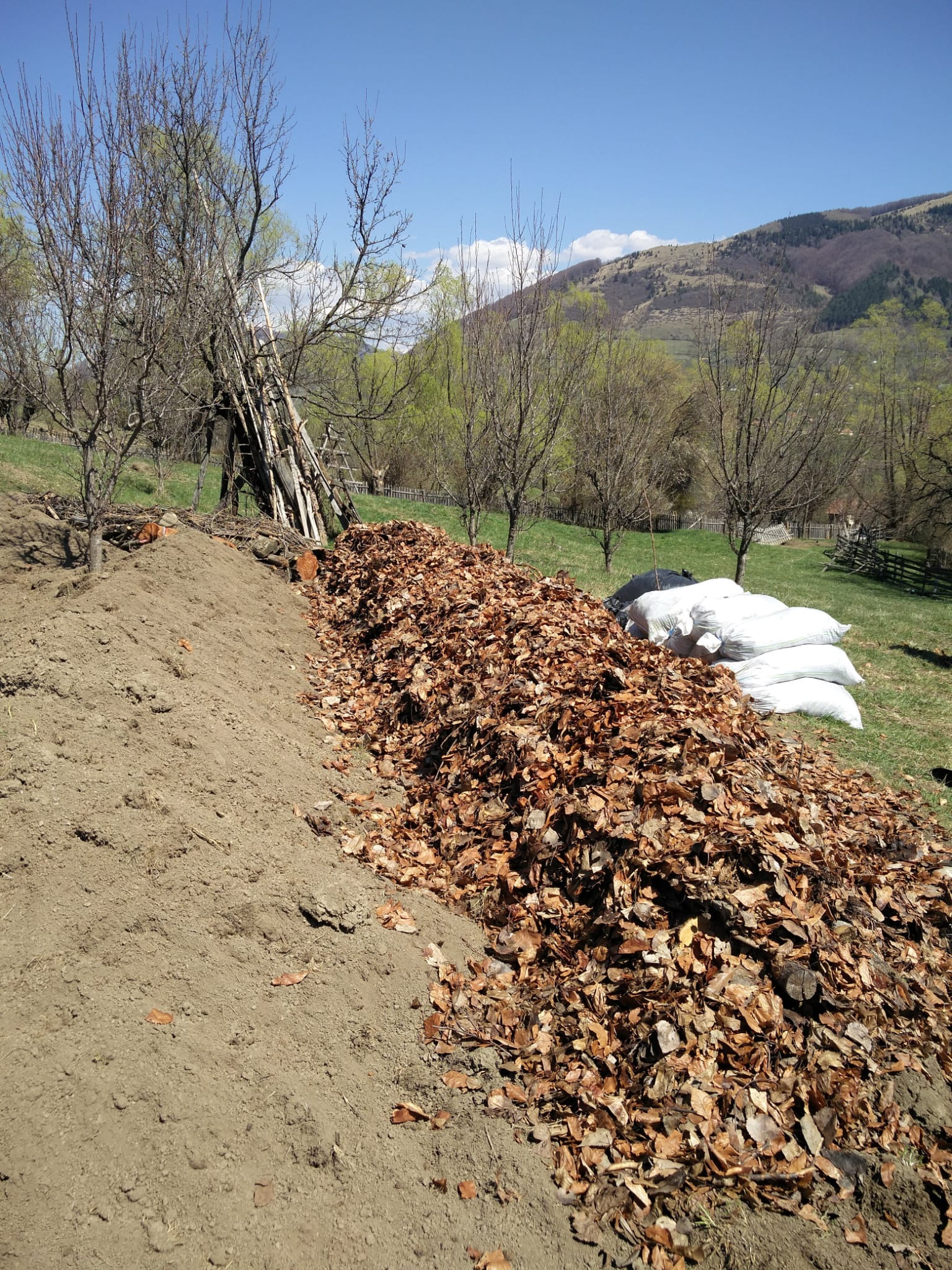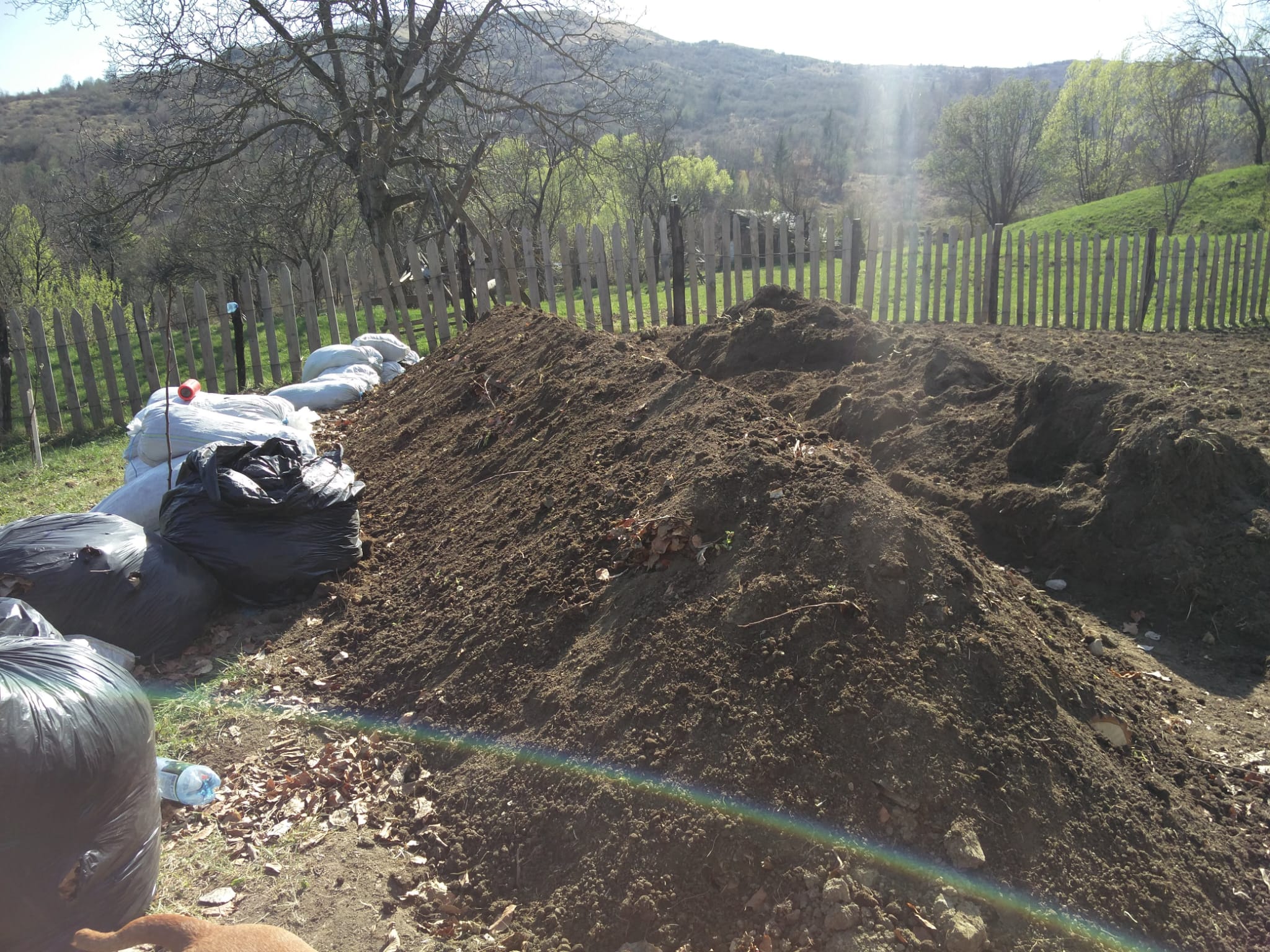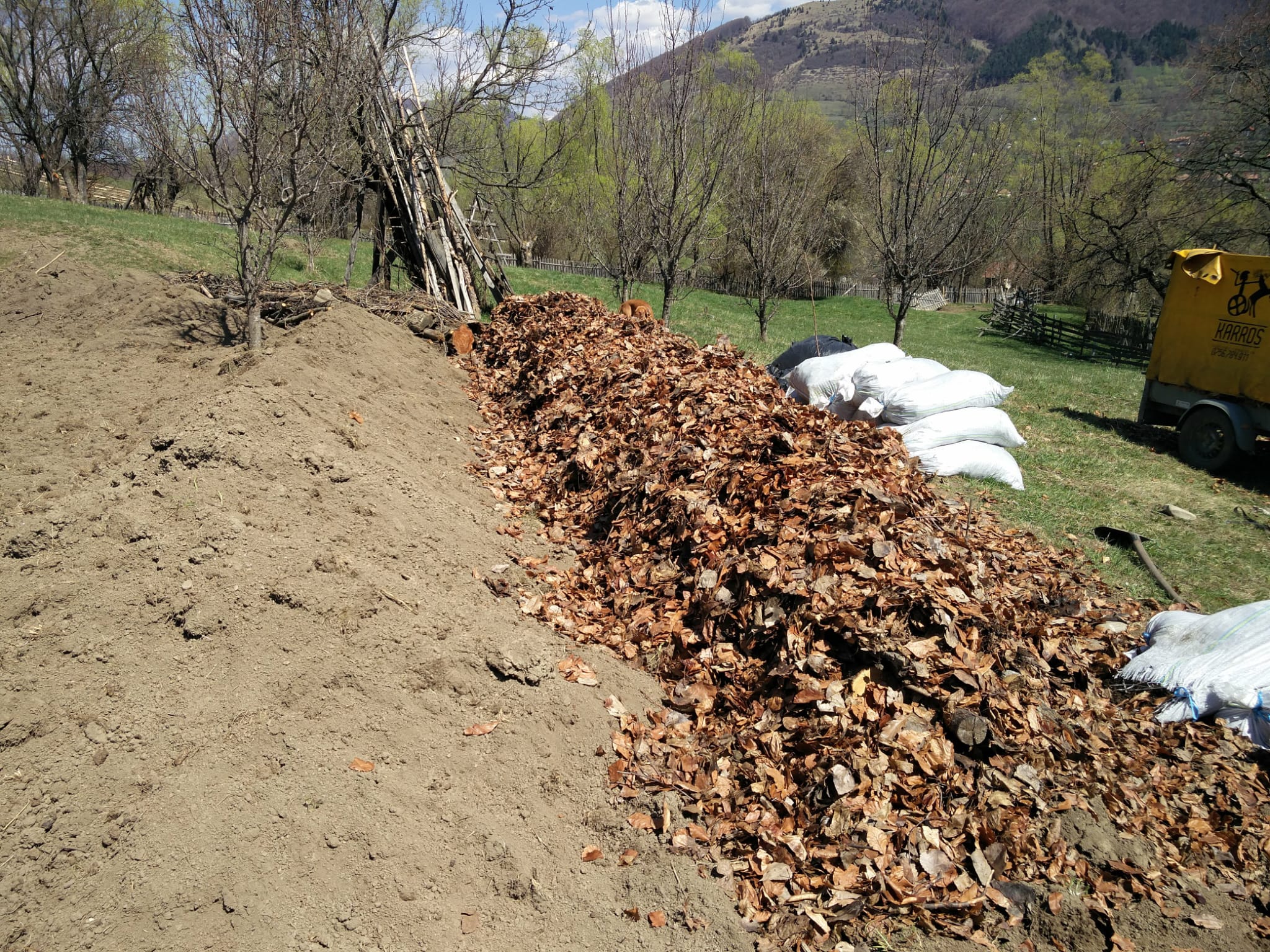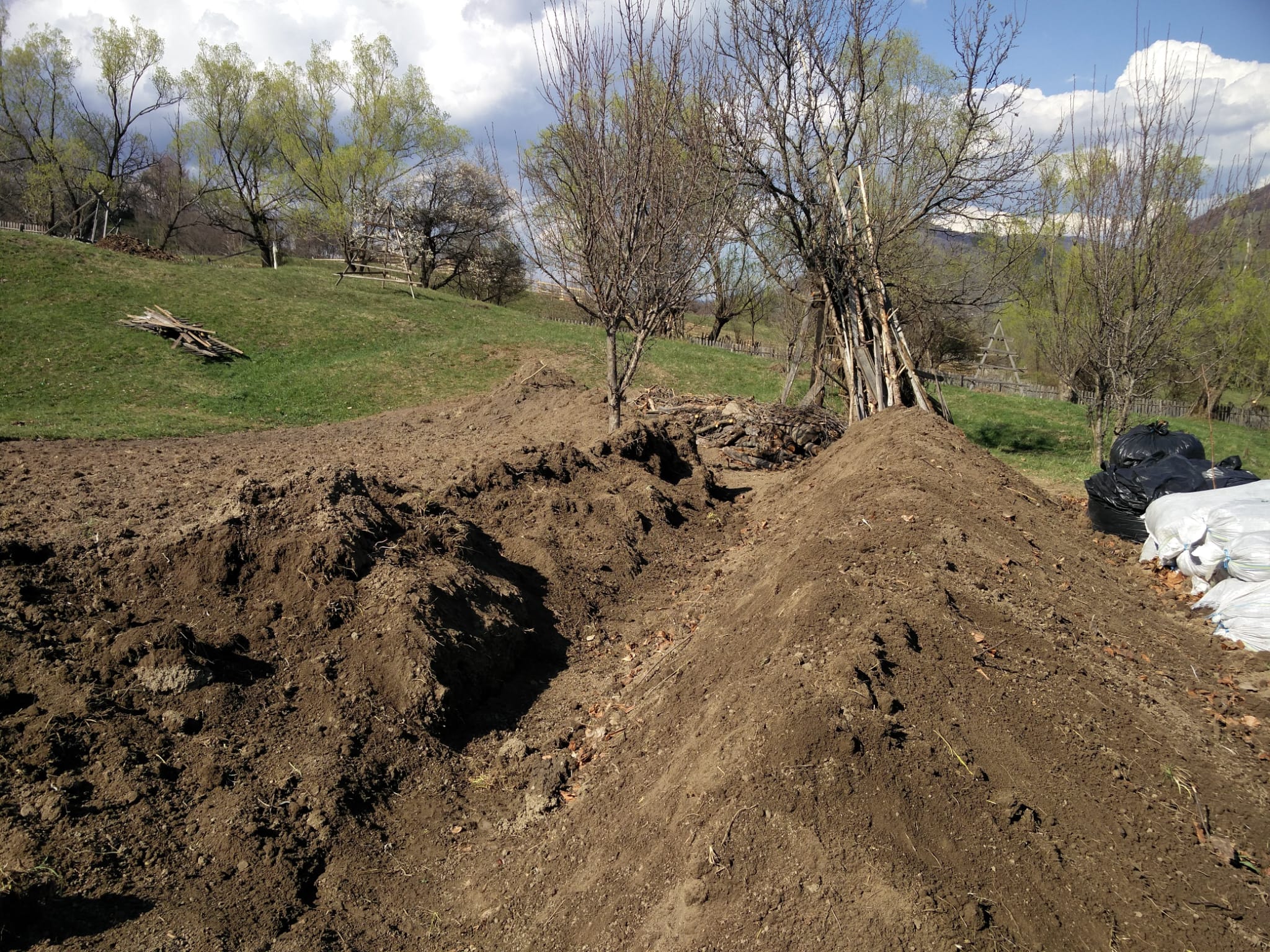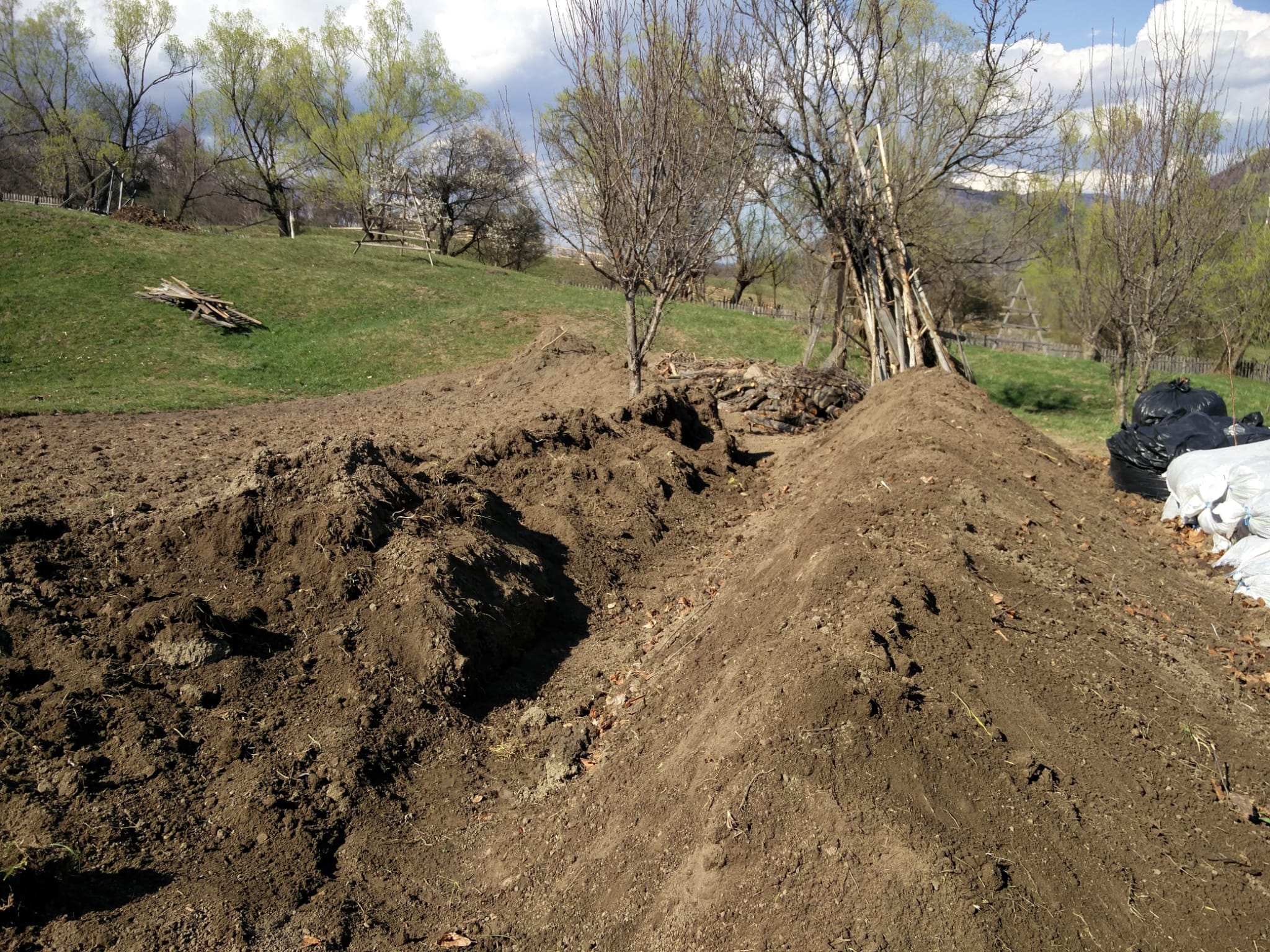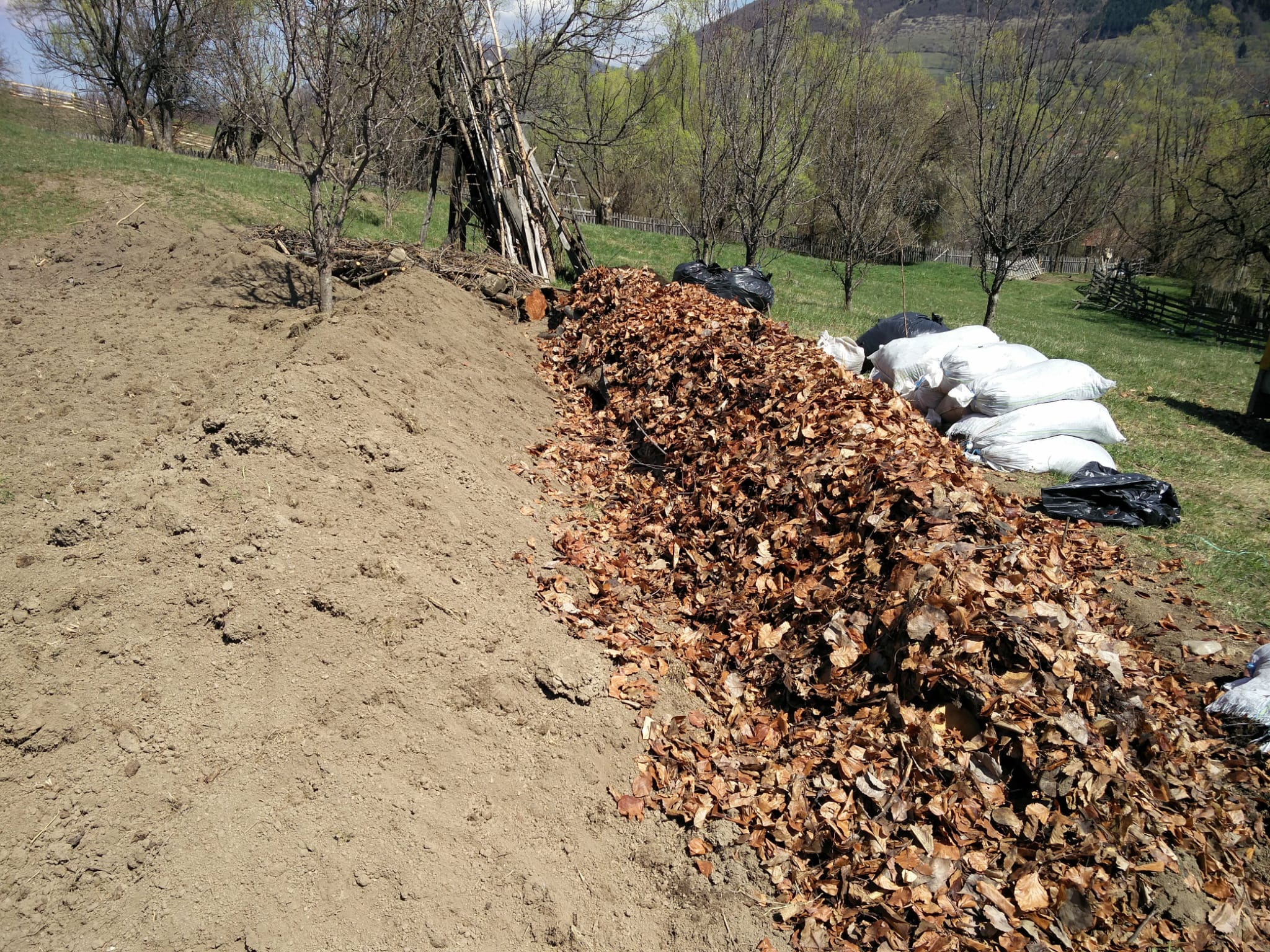Reconnecting with nature
Zazpedeal
Zaz on the hill-a playground for architecture, permaculture, sustainability and education in nature
Zazpedeal is where architecture meets permaculture and sustainability, creating a harmonious space for learning and growth. Here, we empower children and individuals to reconnect with nature, teaching them how to grow their own food and build with natural materials. A place of education, innovation, and ecological wisdom, Zazpedeal nurtures a sustainable future for all.
Romania
Local
Teșila
Mainly rural
It refers to a physical transformation of the built environment (hard investment)
Yes
2022-12-21
No
No
Yes
Yes
Yes
As an individual
Project Summary: Zaqzpedeal – Regenerating Soil, Growing Food, and Preserving Heritage
Zaqzpedeal is a unique project where permaculture, sustainable food growing, and architectural heritage converge to create a thriving, regenerative ecosystem. Our mission is to educate and empower individuals—especially children and families—by reconnecting them with nature and teaching them how to grow their own food, regenerate soil, and build with natural materials.
A standout feature of Zaqzpedeal is the preservation of architectural heritage. We’ve brought a traditional house from Maramureș County, saving it from decay and relocating it to our site. This house represents the region’s rich cultural heritage, showcasing sustainable building practices that use local, natural materials. By integrating this historic structure into the project, we honor the past while demonstrating how traditional methods can contribute to a sustainable future.
Children: We provide hands-on education for young people, introducing them to the principles of permaculture, sustainable food production, and natural building techniques.
Adults & Families: We support adults in adopting sustainable practices for food growing and eco-friendly construction, promoting healthier lifestyles and local resilience.
Local Farmers & Communities: Our project reaches out to farmers and community members, encouraging the use of regenerative agriculture to enhance soil health and food security.
Objectives:
Promote Permaculture and Sustainable Farming: Teach food growing techniques that nurture the land, including crop rotation, companion planting, and water management.
Regenerate Soil Health: Focus on methods like composting, mulching, and biochar to revitalize soil, increase fertility, and boost biodiversity.
Hands-On Learning: Offer practical workshops where participants can learn food growing, soil regeneration, and natural building.
Preserve Heritage: Save and showcase traditional Maramureș arch
Zaqzpedeal is a unique project where permaculture, sustainable food growing, and architectural heritage converge to create a thriving, regenerative ecosystem. Our mission is to educate and empower individuals—especially children and families—by reconnecting them with nature and teaching them how to grow their own food, regenerate soil, and build with natural materials.
A standout feature of Zaqzpedeal is the preservation of architectural heritage. We’ve brought a traditional house from Maramureș County, saving it from decay and relocating it to our site. This house represents the region’s rich cultural heritage, showcasing sustainable building practices that use local, natural materials. By integrating this historic structure into the project, we honor the past while demonstrating how traditional methods can contribute to a sustainable future.
Children: We provide hands-on education for young people, introducing them to the principles of permaculture, sustainable food production, and natural building techniques.
Adults & Families: We support adults in adopting sustainable practices for food growing and eco-friendly construction, promoting healthier lifestyles and local resilience.
Local Farmers & Communities: Our project reaches out to farmers and community members, encouraging the use of regenerative agriculture to enhance soil health and food security.
Objectives:
Promote Permaculture and Sustainable Farming: Teach food growing techniques that nurture the land, including crop rotation, companion planting, and water management.
Regenerate Soil Health: Focus on methods like composting, mulching, and biochar to revitalize soil, increase fertility, and boost biodiversity.
Hands-On Learning: Offer practical workshops where participants can learn food growing, soil regeneration, and natural building.
Preserve Heritage: Save and showcase traditional Maramureș arch
Architecture
Permaculture
Food forest
Sustainability
Education
Zaqzpedeal is a project designed to integrate ecological, social, and cultural sustainability through permaculture, soil regeneration, food security, and architectural preservation. The key objectives of the project focus on fostering long-term ecological health, empowering communities, and preserving cultural heritage.
1. Ecological Sustainability: Soil Health & Regeneration
Objective: Regenerate soil health and implement sustainable farming practices.
How It's Met: We employ regenerative agricultural techniques like no-till farming, composting, mulching, and agroforestry to restore and enhance soil fertility. These methods reduce erosion, increase carbon sequestration, and boost biodiversity, making the land more resilient to climate change. The result is nutrient-dense food grown sustainably, contributing to the long-term health of the ecosystem.
2. Social Sustainability: Education & Empowerment
Objective: Educate children, families, and local communities on sustainable food growing and land stewardship.
How It's Met: Over 500 participants have attended workshops on permaculture, soil regeneration, and natural building, gaining hands-on experience in sustainable practices. Children are taught to reconnect with nature and grow their own food, while adults and families learn to implement these skills in their daily lives, building a resilient, self-sufficient community.
3. Cultural Sustainability: Architectural Preservation
Objective: Preserve cultural heritage through sustainable architecture.
How It's Met: Zaqzpedeal has preserved a traditional house from Maramureș County, saving it from decay and relocating it to our site. This historic structure showcases sustainable building techniques using local, natural materials, proving that traditional architecture can be adapted to modern, eco-friendly living. It serves as both a functional home and a cultural landmark.
4. Economic Sustainability: Local Resilience & Resource Efficiency
1. Ecological Sustainability: Soil Health & Regeneration
Objective: Regenerate soil health and implement sustainable farming practices.
How It's Met: We employ regenerative agricultural techniques like no-till farming, composting, mulching, and agroforestry to restore and enhance soil fertility. These methods reduce erosion, increase carbon sequestration, and boost biodiversity, making the land more resilient to climate change. The result is nutrient-dense food grown sustainably, contributing to the long-term health of the ecosystem.
2. Social Sustainability: Education & Empowerment
Objective: Educate children, families, and local communities on sustainable food growing and land stewardship.
How It's Met: Over 500 participants have attended workshops on permaculture, soil regeneration, and natural building, gaining hands-on experience in sustainable practices. Children are taught to reconnect with nature and grow their own food, while adults and families learn to implement these skills in their daily lives, building a resilient, self-sufficient community.
3. Cultural Sustainability: Architectural Preservation
Objective: Preserve cultural heritage through sustainable architecture.
How It's Met: Zaqzpedeal has preserved a traditional house from Maramureș County, saving it from decay and relocating it to our site. This historic structure showcases sustainable building techniques using local, natural materials, proving that traditional architecture can be adapted to modern, eco-friendly living. It serves as both a functional home and a cultural landmark.
4. Economic Sustainability: Local Resilience & Resource Efficiency
Zaqzpedeal is designed not only to be environmentally sustainable but also to provide a high-quality, enriching experience for all who visit and engage with the space. The project’s key aesthetic objectives focus on blending beauty, functionality, and cultural heritage through thoughtful design and a connection to nature. These efforts aim to enhance the overall experience for participants while celebrating local traditions and promoting a harmonious relationship with the environment.
1. Aesthetic Integration with Nature
Objective: Create a harmonious environment that blends architecture and landscape.
How It’s Met: The design of Zaqzpedeal prioritizes natural materials and organic forms, ensuring that the built structures integrate seamlessly into the surrounding landscape. Buildings are constructed using local wood, stone, and other natural materials, contributing to the area's beauty while maintaining environmental harmony. This connection to nature offers visitors a peaceful, immersive experience where architecture and landscape coexist thoughtfully.
2. Cultural and Architectural Heritage
Objective: Preserve and showcase cultural heritage through architectural design.
How It’s Met: A key highlight of Zaqzpedeal is the restoration and relocation of a traditional house from Maramureș County, a region known for its rich architectural heritage. This house serves as both a living space and an educational center, demonstrating the beauty and craftsmanship of local traditions. Visitors experience firsthand how traditional design can be adapted for modern, sustainable living, preserving cultural identity while promoting eco-friendly practices.
3. Aesthetic Appeal in Daily Living and Learning
Objective: Enhance daily life with beautiful, functional spaces that promote well-being.
The design of gardens, workshops, and communal spaces ensures that they are not only functional but also visually appealing, encouraging relaxation, creativity, and learning.
1. Aesthetic Integration with Nature
Objective: Create a harmonious environment that blends architecture and landscape.
How It’s Met: The design of Zaqzpedeal prioritizes natural materials and organic forms, ensuring that the built structures integrate seamlessly into the surrounding landscape. Buildings are constructed using local wood, stone, and other natural materials, contributing to the area's beauty while maintaining environmental harmony. This connection to nature offers visitors a peaceful, immersive experience where architecture and landscape coexist thoughtfully.
2. Cultural and Architectural Heritage
Objective: Preserve and showcase cultural heritage through architectural design.
How It’s Met: A key highlight of Zaqzpedeal is the restoration and relocation of a traditional house from Maramureș County, a region known for its rich architectural heritage. This house serves as both a living space and an educational center, demonstrating the beauty and craftsmanship of local traditions. Visitors experience firsthand how traditional design can be adapted for modern, sustainable living, preserving cultural identity while promoting eco-friendly practices.
3. Aesthetic Appeal in Daily Living and Learning
Objective: Enhance daily life with beautiful, functional spaces that promote well-being.
The design of gardens, workshops, and communal spaces ensures that they are not only functional but also visually appealing, encouraging relaxation, creativity, and learning.
1. Education for Diverse Audiences
Zazpedeal offers a wide range of programs that are specifically designed to be inclusive. Children from all backgrounds are engaged through interactive, hands-on learning, with programs focused on sustainable food production and nature connection. For adults and families, workshops address varying levels of experience, from beginners to those already practicing sustainability. Additionally, we encourage participation from marginalized and underrepresented groups, fostering a diverse learning environment that reflects the community’s richness.
2. Cultural Inclusivity: The project emphasizes the importance of cultural heritage and the shared wisdom of different communities, encouraging dialogue and exchange. The preservation of the traditional house from Maramureș County is just one example of how we honor local culture while embracing new ideas. Zaqzpedeal provides a platform for diverse voices to share knowledge about sustainable practices from different cultural contexts, promoting respect for diversity and fostering a culture of inclusivity.
3. Community Building and Participation Zazpedeal encourages active involvement from all participants in shaping the project’s direction, whether through workshops, decision-making processes, or community gatherings. This participatory approach ensures that everyone feels heard and valued. We also work with local organizations and groups to ensure that those who may have been historically excluded or marginalized are represented and have opportunities to engage in sustainable development.
Zazpedeal offers a wide range of programs that are specifically designed to be inclusive. Children from all backgrounds are engaged through interactive, hands-on learning, with programs focused on sustainable food production and nature connection. For adults and families, workshops address varying levels of experience, from beginners to those already practicing sustainability. Additionally, we encourage participation from marginalized and underrepresented groups, fostering a diverse learning environment that reflects the community’s richness.
2. Cultural Inclusivity: The project emphasizes the importance of cultural heritage and the shared wisdom of different communities, encouraging dialogue and exchange. The preservation of the traditional house from Maramureș County is just one example of how we honor local culture while embracing new ideas. Zaqzpedeal provides a platform for diverse voices to share knowledge about sustainable practices from different cultural contexts, promoting respect for diversity and fostering a culture of inclusivity.
3. Community Building and Participation Zazpedeal encourages active involvement from all participants in shaping the project’s direction, whether through workshops, decision-making processes, or community gatherings. This participatory approach ensures that everyone feels heard and valued. We also work with local organizations and groups to ensure that those who may have been historically excluded or marginalized are represented and have opportunities to engage in sustainable development.
Zaqzpedeal is designed to provide lasting benefits to citizens by empowering them with the skills, knowledge, and resources needed to live sustainably, while fostering a stronger sense of community. The project creates opportunities for citizens to directly engage with nature, learn new skills, and contribute to the regeneration of their local environment. Through hands-on learning and active participation, the project has a tangible, positive impact on the lives of individuals, families, and local communities.
Unfortunately, the stakeholders were not actively involved in the Zazpedeal project, which focuses on architecture, sustainability, and permaculture. This lack of engagement from key parties, such as local authorities, community members, and other relevant organizations, has limited the project’s potential impact thus far. The project was meant to foster a collaborative environment where different groups could come together to address important environmental and architectural challenges, promoting sustainable living and permaculture practices.
However, there is hope that with increased visibility and broader engagement from various target groups—such as the local community, businesses, environmental organizations, and especially local authorities—there will be a shift. As more people become aware of the project's significance and the potential benefits it offers, it is anticipated that local authorities will recognize the importance of supporting and becoming more involved in such initiatives.
Engagement with the public and relevant stakeholders can drive awareness, build support, and demonstrate the tangible benefits of architecture that integrates sustainability and permaculture. With the right momentum and continued efforts to bring diverse perspectives into the conversation, it's likely that the local authorities will understand the value of the Zazpedeal project and commit to its growth, allowing it to contribute more effectively to the community's sustainability goals.
However, there is hope that with increased visibility and broader engagement from various target groups—such as the local community, businesses, environmental organizations, and especially local authorities—there will be a shift. As more people become aware of the project's significance and the potential benefits it offers, it is anticipated that local authorities will recognize the importance of supporting and becoming more involved in such initiatives.
Engagement with the public and relevant stakeholders can drive awareness, build support, and demonstrate the tangible benefits of architecture that integrates sustainability and permaculture. With the right momentum and continued efforts to bring diverse perspectives into the conversation, it's likely that the local authorities will understand the value of the Zazpedeal project and commit to its growth, allowing it to contribute more effectively to the community's sustainability goals.
Zazpedeal integrates multiple disciplines and knowledge fields, reflecting a holistic approach to architecture, sustainability, and permaculture.
Architecture & Design:
The project incorporates architectural design principles, particularly focusing on natural building practices. The relocation and restoration of the Old Oak House, using sustainable materials and methods, showcase traditional craftsmanship and architectural techniques adapted to modern sustainable needs.
Sustainability:
The project emphasizes sustainable practices across all areas, from energy-efficient building techniques to the use of natural materials that minimize environmental impact. Concepts like passive solar design, natural insulation, and low-carbon construction are likely reflected in the restoration and new constructions.
Permaculture:
At its core, the project teaches permaculture, which involves designing agricultural systems that mimic natural ecosystems. This includes methods for growing food sustainably, such as companion planting, soil regeneration, and water conservation techniques.
Ecology & Environmental Science:
The project reflects ecological principles, with a focus on creating a balanced relationship between built environments and nature. This could involve soil health, biodiversity, and creating ecosystems that support local wildlife.
Cultural Heritage & Preservation:
By relocating and restoring the Old Oak House from Maramureș, the project connects with the cultural heritage and traditional building practices of the region. This reflects the importance of preserving historical structures while adapting them to modern sustainable needs.
Education & Community Engagement:
Zazpedeal serves as a learning hub, providing knowledge and practical skills in sustainable living, growing food, and building with natural materials. This aligns with fields like environmental educati
Architecture & Design:
The project incorporates architectural design principles, particularly focusing on natural building practices. The relocation and restoration of the Old Oak House, using sustainable materials and methods, showcase traditional craftsmanship and architectural techniques adapted to modern sustainable needs.
Sustainability:
The project emphasizes sustainable practices across all areas, from energy-efficient building techniques to the use of natural materials that minimize environmental impact. Concepts like passive solar design, natural insulation, and low-carbon construction are likely reflected in the restoration and new constructions.
Permaculture:
At its core, the project teaches permaculture, which involves designing agricultural systems that mimic natural ecosystems. This includes methods for growing food sustainably, such as companion planting, soil regeneration, and water conservation techniques.
Ecology & Environmental Science:
The project reflects ecological principles, with a focus on creating a balanced relationship between built environments and nature. This could involve soil health, biodiversity, and creating ecosystems that support local wildlife.
Cultural Heritage & Preservation:
By relocating and restoring the Old Oak House from Maramureș, the project connects with the cultural heritage and traditional building practices of the region. This reflects the importance of preserving historical structures while adapting them to modern sustainable needs.
Education & Community Engagement:
Zazpedeal serves as a learning hub, providing knowledge and practical skills in sustainable living, growing food, and building with natural materials. This aligns with fields like environmental educati
The innovative character of Zazpedeal lies in its integration of traditional knowledge with modern sustainable practices, creating a unique space that blends architecture, permaculture, and community-based education. Here are some key aspects that highlight its innovative nature:
1. Restoration of the Old Oak House Using Natural Materials
The relocation and restoration of the Old Oak House from Maramureș is a distinctive innovation, blending cultural heritage with modern sustainability. By rehabilitating the house using natural, locally sourced materials and traditional building techniques, the project showcases how historical structures can be preserved while adapting them for modern, eco-friendly living.
2. Sustainable Architecture and Natural Building Practices
The project's commitment to sustainable architecture and natural building techniques is groundbreaking. By utilizing materials like clay, straw, and wood in the construction process, it sets an example of how to build with minimal environmental impact. This approach also offers an alternative to conventional construction, which is often resource-intensive and wasteful.
3. Permaculture as a Lifestyle
Unlike many conventional sustainability projects, Zazpedeal takes a holistic, lifestyle-centered approach to sustainability by integrating permaculture principles. It focuses not just on growing food but on creating self-sustaining ecosystems that promote long-term ecological health. The project teaches individuals how to live in harmony with nature through regenerative farming practices, water management, and biodiversity.
4. Education and Knowledge Transfer
Zazpedeal is innovative in its role as a living educational center. It doesn't just demonstrate sustainability; it actively engages visitors and local communities in learning how to grow food, build naturally, and live sustainably. Workshops and hands-on experiences make knowledge accessible, empowering individuals to take sustainable practice
1. Restoration of the Old Oak House Using Natural Materials
The relocation and restoration of the Old Oak House from Maramureș is a distinctive innovation, blending cultural heritage with modern sustainability. By rehabilitating the house using natural, locally sourced materials and traditional building techniques, the project showcases how historical structures can be preserved while adapting them for modern, eco-friendly living.
2. Sustainable Architecture and Natural Building Practices
The project's commitment to sustainable architecture and natural building techniques is groundbreaking. By utilizing materials like clay, straw, and wood in the construction process, it sets an example of how to build with minimal environmental impact. This approach also offers an alternative to conventional construction, which is often resource-intensive and wasteful.
3. Permaculture as a Lifestyle
Unlike many conventional sustainability projects, Zazpedeal takes a holistic, lifestyle-centered approach to sustainability by integrating permaculture principles. It focuses not just on growing food but on creating self-sustaining ecosystems that promote long-term ecological health. The project teaches individuals how to live in harmony with nature through regenerative farming practices, water management, and biodiversity.
4. Education and Knowledge Transfer
Zazpedeal is innovative in its role as a living educational center. It doesn't just demonstrate sustainability; it actively engages visitors and local communities in learning how to grow food, build naturally, and live sustainably. Workshops and hands-on experiences make knowledge accessible, empowering individuals to take sustainable practice
Zazpedeal is a unique space where architecture, permaculture, sustainability, and education converge. This living environment is anchored by the restoration of an old oak beam house from Maramureș, brought into the present using natural materials and modern sustainable practices.
Restoration & Sustainability: The house’s restoration blends traditional craftsmanship with eco-friendly innovations, utilizing local, natural materials like clay, straw, and timber. Modern features like passive solar design and energy-efficient insulation ensure sustainability while honoring the building’s heritage.
Permaculture & Ecological Design: Zazpedeal embraces permaculture principles, creating self-sustaining systems that integrate with the land. This includes food forests, water harvesting systems, and soil regeneration practices. Greywater systems and reed bed filtration promote water conservation and ecological balance, ensuring long-term resilience.
Education & Community: Zazpedeal serves as a hands-on educational hub, offering workshops on natural building, renewable energy, and permaculture. Visitors learn by actively participating in the creation and maintenance of sustainable systems. The space fosters collaboration, with local and global communities working together to implement sustainable solutions.
Social Sustainability: Inclusivity is key, with Zazpedeal welcoming individuals from all backgrounds. Local materials and organic food sourcing strengthen the community and encourage a circular economy, minimizing waste and supporting local businesses.
Innovation & Growth: Constantly evolving, Zazpedeal integrates new sustainable technologies, such as solar energy systems and carbon-negative materials, ensuring it remains a model of ecological and social innovation.
Zazpedeal is a space that preserves tradition, fosters education, and creates a sustainable future where nature and people thrive together.
Restoration & Sustainability: The house’s restoration blends traditional craftsmanship with eco-friendly innovations, utilizing local, natural materials like clay, straw, and timber. Modern features like passive solar design and energy-efficient insulation ensure sustainability while honoring the building’s heritage.
Permaculture & Ecological Design: Zazpedeal embraces permaculture principles, creating self-sustaining systems that integrate with the land. This includes food forests, water harvesting systems, and soil regeneration practices. Greywater systems and reed bed filtration promote water conservation and ecological balance, ensuring long-term resilience.
Education & Community: Zazpedeal serves as a hands-on educational hub, offering workshops on natural building, renewable energy, and permaculture. Visitors learn by actively participating in the creation and maintenance of sustainable systems. The space fosters collaboration, with local and global communities working together to implement sustainable solutions.
Social Sustainability: Inclusivity is key, with Zazpedeal welcoming individuals from all backgrounds. Local materials and organic food sourcing strengthen the community and encourage a circular economy, minimizing waste and supporting local businesses.
Innovation & Growth: Constantly evolving, Zazpedeal integrates new sustainable technologies, such as solar energy systems and carbon-negative materials, ensuring it remains a model of ecological and social innovation.
Zazpedeal is a space that preserves tradition, fosters education, and creates a sustainable future where nature and people thrive together.
1. Heritage Restoration with Sustainability:
• Relocation and Restoration of Historic Structures: The method of moving and restoring old buildings with local materials and eco-friendly upgrades can be applied in other regions to preserve cultural heritage while reducing environmental impact.
• Natural Materials in Construction: Using locally sourced materials like clay, straw, and timber can be replicated in other regions, promoting sustainable architecture and reducing the carbon footprint.
2. Permaculture & Ecological Design:
• Food Forests & Regenerative Agriculture: Implementing food forests and regenerative farming techniques can improve local food security, biodiversity, and reduce environmental impact. This approach is adaptable to both urban and rural areas.
• Water Management Systems: Techniques like rainwater harvesting, greywater recycling, and reed bed filtration can be implemented in regions facing water scarcity or seeking self-sufficiency, creating resilient water systems.
3. Educational Programs & Community Engagement:
• Workshops and Skill Sharing: Zazpedeal’s model of hands-on workshops on sustainability, natural building, and permaculture can be replicated in community centers, schools, and eco-villages, empowering individuals to adopt sustainable lifestyles.
• Collaborative Projects: Creating spaces for community-driven projects can strengthen local economies and social ties, fostering cooperation and shared responsibility.
4. Social Sustainability & Circular Economy:
• Local Sourcing & Circular Economy: Zazpedeal’s use of local materials and support for local businesses can be transferred to strengthen local economies and reduce global supply chain dependency. A circular economy model reduces waste and maximizes resource use.
5. Innovative Sustainable technologies
Renewable energy integration
Eco-friendly building materials
• Relocation and Restoration of Historic Structures: The method of moving and restoring old buildings with local materials and eco-friendly upgrades can be applied in other regions to preserve cultural heritage while reducing environmental impact.
• Natural Materials in Construction: Using locally sourced materials like clay, straw, and timber can be replicated in other regions, promoting sustainable architecture and reducing the carbon footprint.
2. Permaculture & Ecological Design:
• Food Forests & Regenerative Agriculture: Implementing food forests and regenerative farming techniques can improve local food security, biodiversity, and reduce environmental impact. This approach is adaptable to both urban and rural areas.
• Water Management Systems: Techniques like rainwater harvesting, greywater recycling, and reed bed filtration can be implemented in regions facing water scarcity or seeking self-sufficiency, creating resilient water systems.
3. Educational Programs & Community Engagement:
• Workshops and Skill Sharing: Zazpedeal’s model of hands-on workshops on sustainability, natural building, and permaculture can be replicated in community centers, schools, and eco-villages, empowering individuals to adopt sustainable lifestyles.
• Collaborative Projects: Creating spaces for community-driven projects can strengthen local economies and social ties, fostering cooperation and shared responsibility.
4. Social Sustainability & Circular Economy:
• Local Sourcing & Circular Economy: Zazpedeal’s use of local materials and support for local businesses can be transferred to strengthen local economies and reduce global supply chain dependency. A circular economy model reduces waste and maximizes resource use.
5. Innovative Sustainable technologies
Renewable energy integration
Eco-friendly building materials
1. Climate Change and Environmental Degradation:
Zazpedeal’s focus on eco-friendly construction using natural, locally sourced materials helps reduce the carbon footprint of building practices. By promoting passive solar design, renewable energy systems, and permaculture, it directly contributes to mitigating climate change and reducing environmental impact. The restoration of the oak beam house using traditional methods ensures that historical buildings are preserved without the ecological costs of new construction.
2. Biodiversity Loss and Ecosystem Degradation:
The space incorporates regenerative agricultural practices and food forests, which restore soil health and promote biodiversity. These efforts combat land degradation, foster local food security, and encourage the cultivation of diverse plant species, thus addressing the decline in biodiversity.
3. Water Scarcity:
Zazpedeal implements water harvesting systems and greywater recycling, ensuring sustainable water use. With increasing water scarcity in many parts of the world, these practices offer valuable models for managing water resources efficiently in both rural and urban settings.
4. Social Inequality and Lack of Education:
By offering hands-on workshops and educational programs on sustainable living, Zazpedeal addresses the global challenge of education inequality. The project empowers local and global communities with knowledge on permaculture, natural building, and renewable energy, fostering a more informed and active population in environmental matters.
5. Economic Inequality and Dependency:
Zazpedeal’s focus on a circular economy and local sourcing creates opportunities for local businesses and strengthens regional economies. This approach reduces dependency on global supply chains and offers a pathway toward more resilient, locally-driven economies.
Zazpedeal’s focus on eco-friendly construction using natural, locally sourced materials helps reduce the carbon footprint of building practices. By promoting passive solar design, renewable energy systems, and permaculture, it directly contributes to mitigating climate change and reducing environmental impact. The restoration of the oak beam house using traditional methods ensures that historical buildings are preserved without the ecological costs of new construction.
2. Biodiversity Loss and Ecosystem Degradation:
The space incorporates regenerative agricultural practices and food forests, which restore soil health and promote biodiversity. These efforts combat land degradation, foster local food security, and encourage the cultivation of diverse plant species, thus addressing the decline in biodiversity.
3. Water Scarcity:
Zazpedeal implements water harvesting systems and greywater recycling, ensuring sustainable water use. With increasing water scarcity in many parts of the world, these practices offer valuable models for managing water resources efficiently in both rural and urban settings.
4. Social Inequality and Lack of Education:
By offering hands-on workshops and educational programs on sustainable living, Zazpedeal addresses the global challenge of education inequality. The project empowers local and global communities with knowledge on permaculture, natural building, and renewable energy, fostering a more informed and active population in environmental matters.
5. Economic Inequality and Dependency:
Zazpedeal’s focus on a circular economy and local sourcing creates opportunities for local businesses and strengthens regional economies. This approach reduces dependency on global supply chains and offers a pathway toward more resilient, locally-driven economies.
Environmental Impact:
Carbon Footprint Reduction: By using locally sourced, natural materials for building restoration and new construction, Zazpedeal has likely reduced its carbon footprint. Passive solar design and solar panels further minimize reliance on non-renewable energy sources, promoting energy efficiency.
Biodiversity Enhancement: The permaculture practices and food forests at Zazpedeal likely contribute to soil regeneration, improved biodiversity, and enhanced local food security, helping restore ecological balance.
Social and Educational Outcomes:
Community Empowerment: Through workshops and hands-on programs, Zazpedeal has educated individuals on sustainable living, empowering them with the knowledge and skills to integrate eco-friendly practices into daily life. This leads to increased environmental awareness and positive behavioral change.
Skill Development: Participants gain practical skills in natural building, permaculture, and renewable energy, creating a skilled workforce capable of supporting future sustainability projects.
Economic and Local Impact:
Strengthening Local Economies: By prioritizing local sourcing of materials and goods, Zazpedeal supports the local economy and reduces dependency on global supply chains. This encourages job creation in eco-construction, sustainable farming, and renewable energy sectors.
Circular Economy: the approach to waste reduction and resource reuse fosters a circular economy, ensuring materials are continually recycled, minimizing waste, and supporting long-term local sustainability.
Water and Resource Management:
Efficient Water Use: Rainwater harvesting and greywater recycling systems implemented at Zazpedeal promote efficient water use, offering a model for areas facing water scarcity or seeking self-sufficiency.
Cultural Heritage Preserv.:
Heritage Conservation: The restoration of the oak beam house showcases how cultural heritage can be preserved sustainably, integrating historical building
Carbon Footprint Reduction: By using locally sourced, natural materials for building restoration and new construction, Zazpedeal has likely reduced its carbon footprint. Passive solar design and solar panels further minimize reliance on non-renewable energy sources, promoting energy efficiency.
Biodiversity Enhancement: The permaculture practices and food forests at Zazpedeal likely contribute to soil regeneration, improved biodiversity, and enhanced local food security, helping restore ecological balance.
Social and Educational Outcomes:
Community Empowerment: Through workshops and hands-on programs, Zazpedeal has educated individuals on sustainable living, empowering them with the knowledge and skills to integrate eco-friendly practices into daily life. This leads to increased environmental awareness and positive behavioral change.
Skill Development: Participants gain practical skills in natural building, permaculture, and renewable energy, creating a skilled workforce capable of supporting future sustainability projects.
Economic and Local Impact:
Strengthening Local Economies: By prioritizing local sourcing of materials and goods, Zazpedeal supports the local economy and reduces dependency on global supply chains. This encourages job creation in eco-construction, sustainable farming, and renewable energy sectors.
Circular Economy: the approach to waste reduction and resource reuse fosters a circular economy, ensuring materials are continually recycled, minimizing waste, and supporting long-term local sustainability.
Water and Resource Management:
Efficient Water Use: Rainwater harvesting and greywater recycling systems implemented at Zazpedeal promote efficient water use, offering a model for areas facing water scarcity or seeking self-sufficiency.
Cultural Heritage Preserv.:
Heritage Conservation: The restoration of the oak beam house showcases how cultural heritage can be preserved sustainably, integrating historical building

